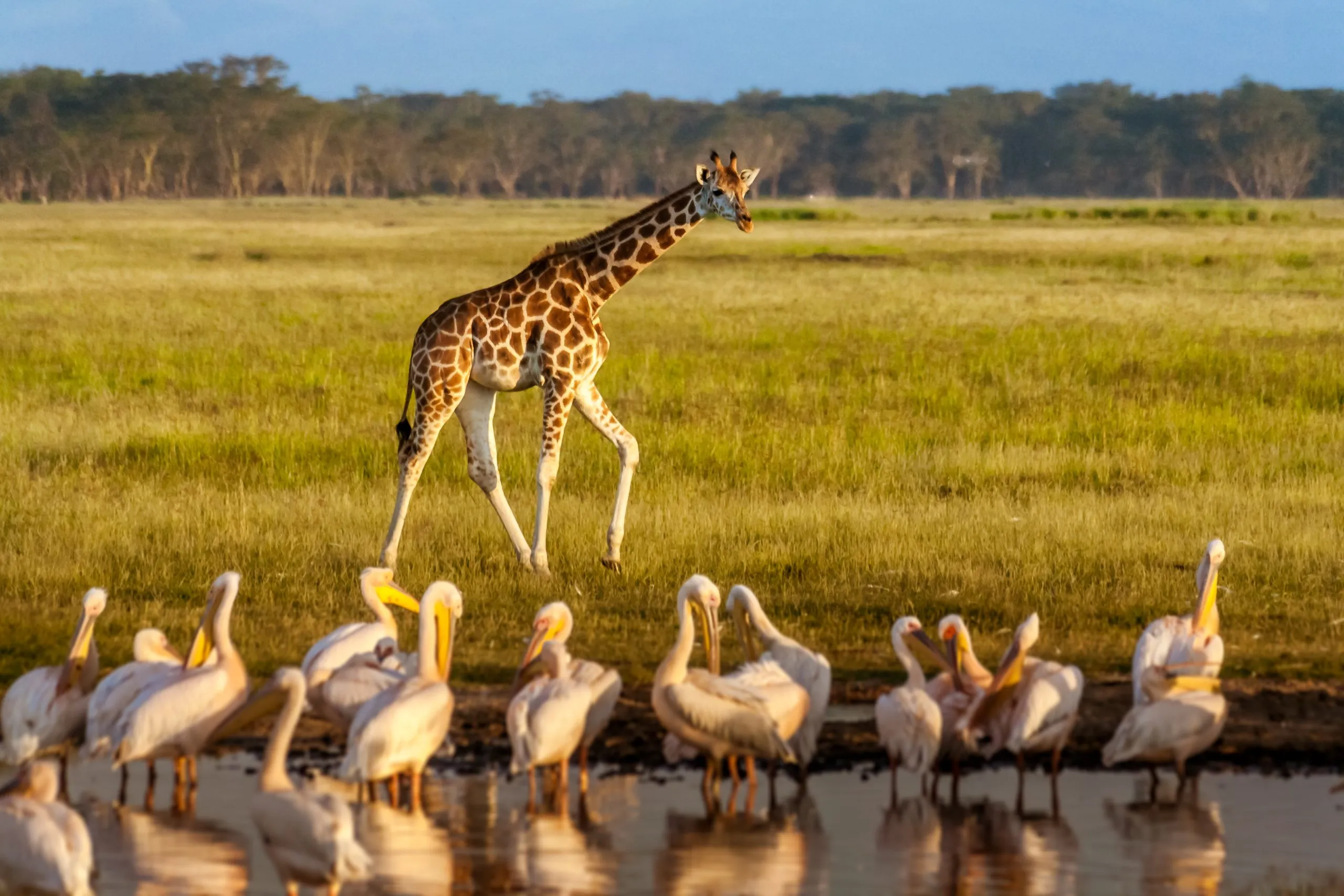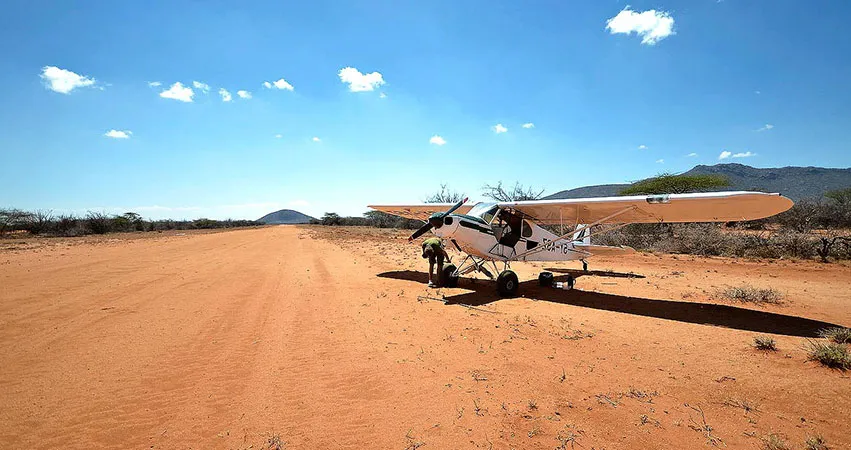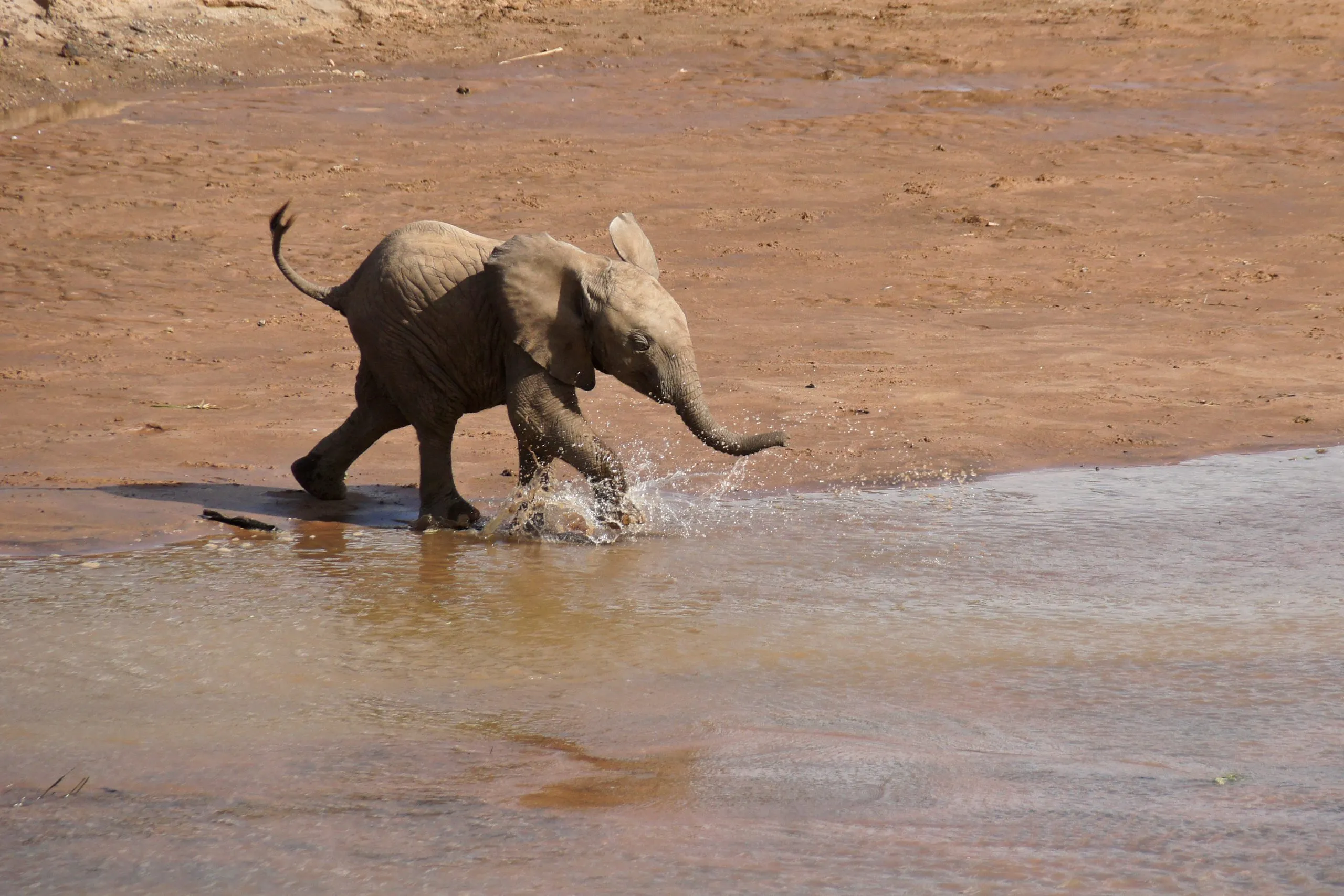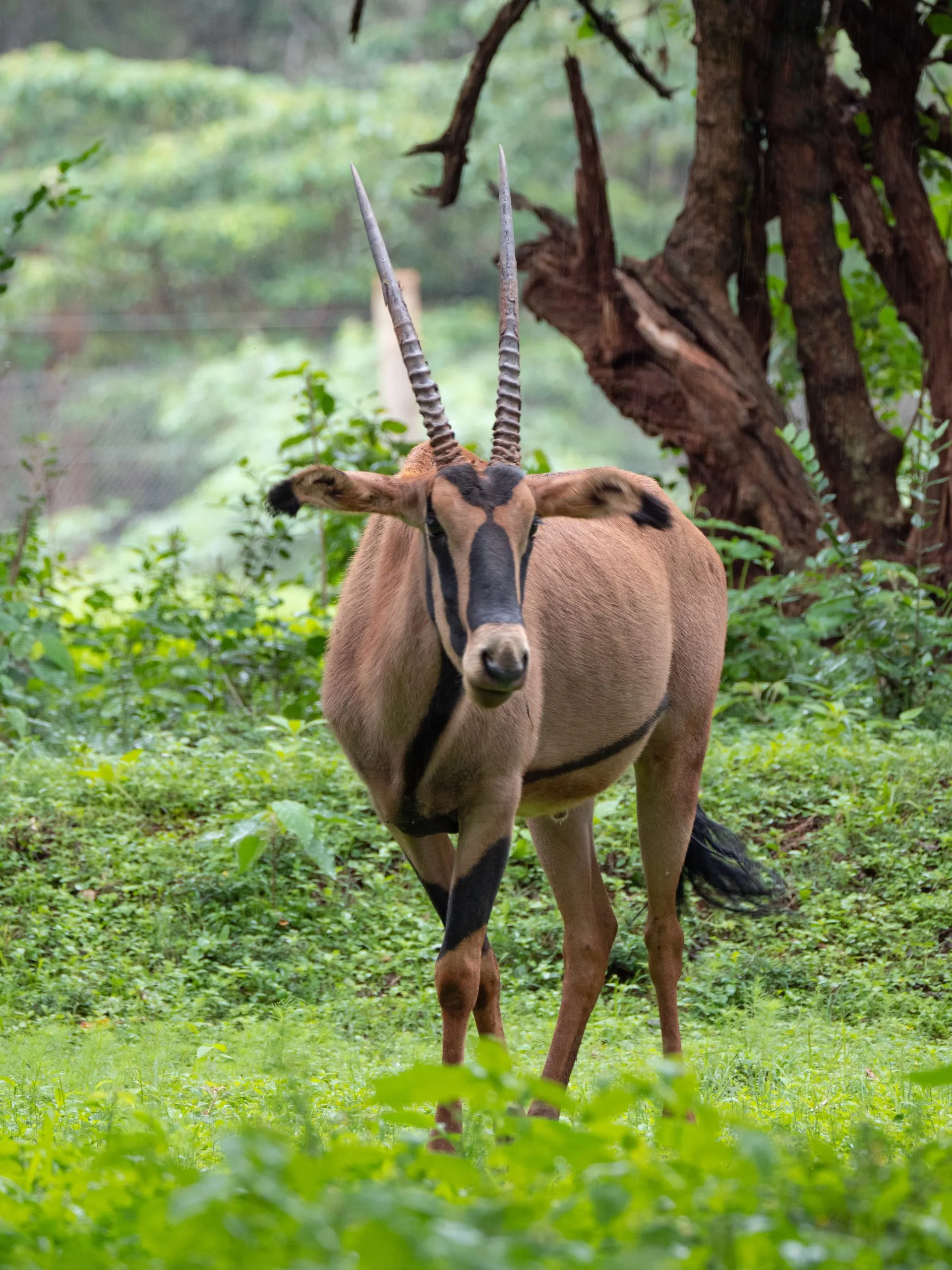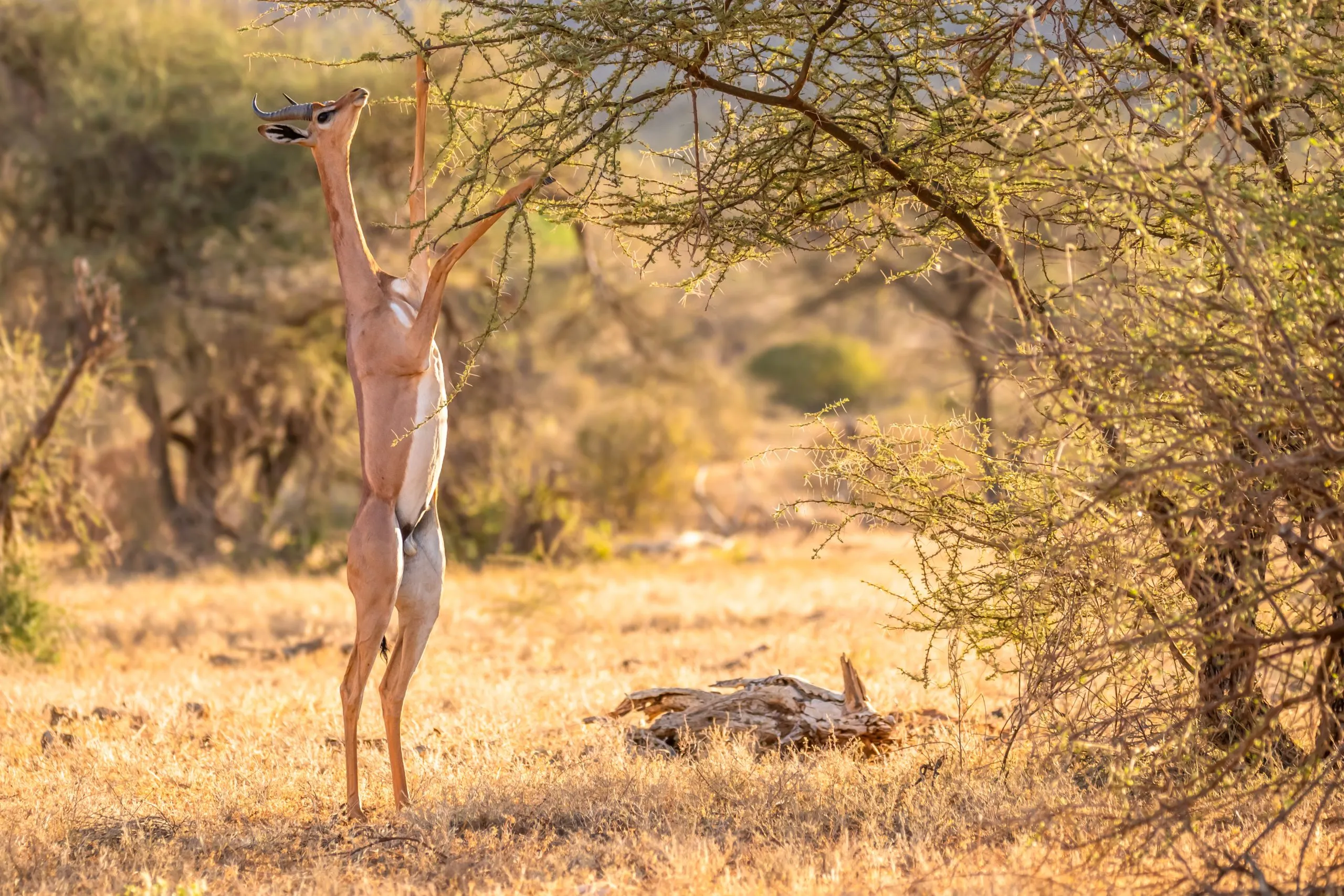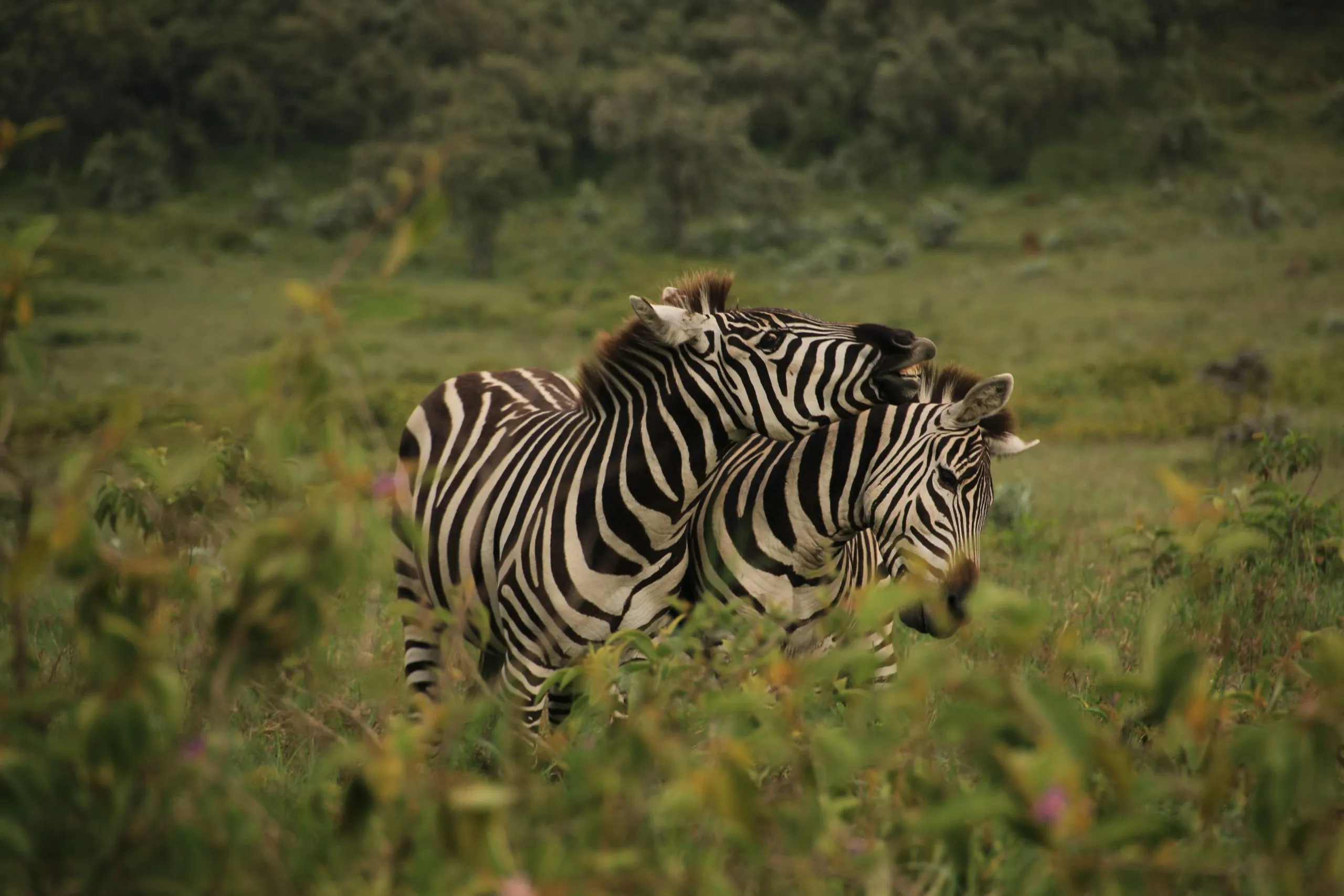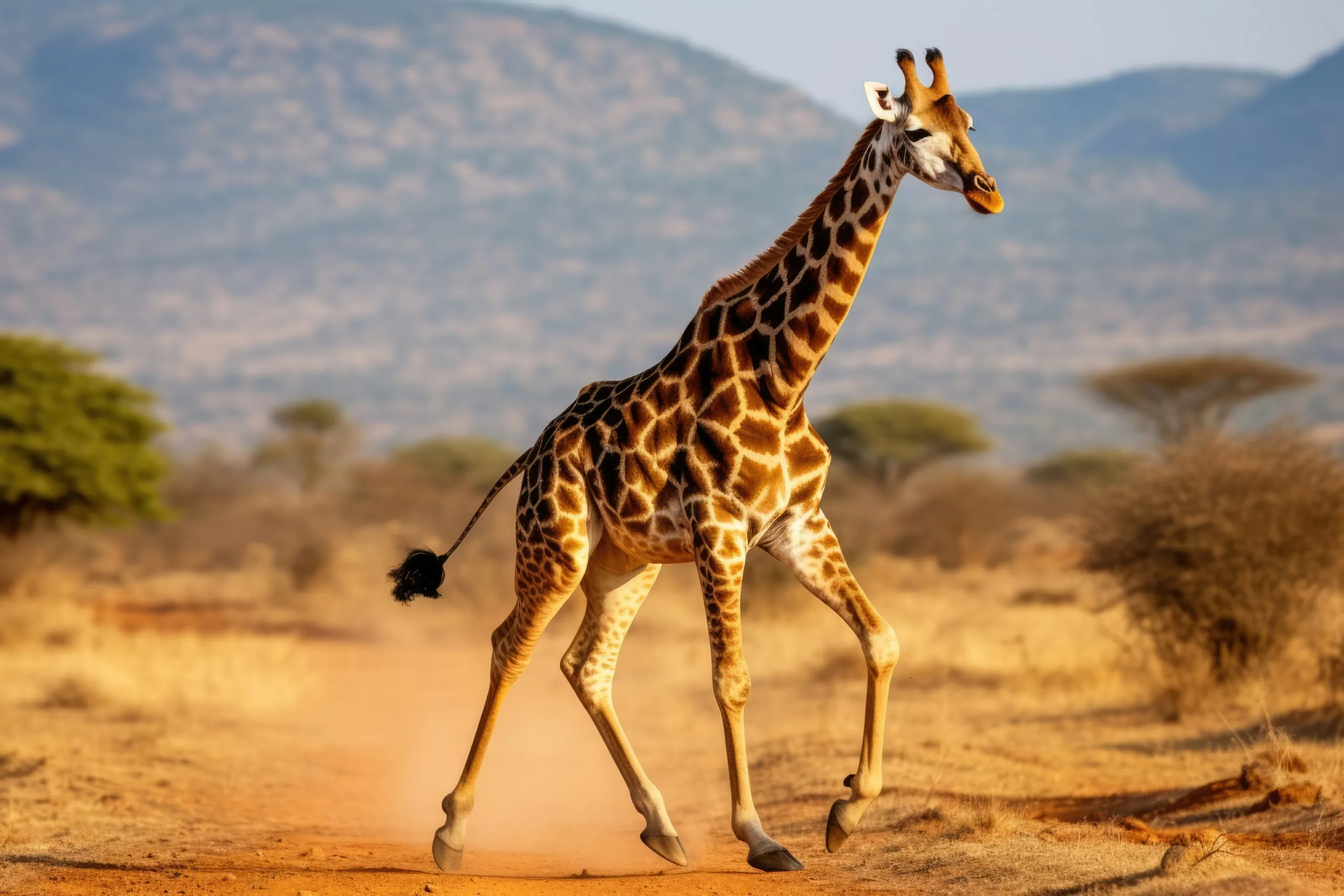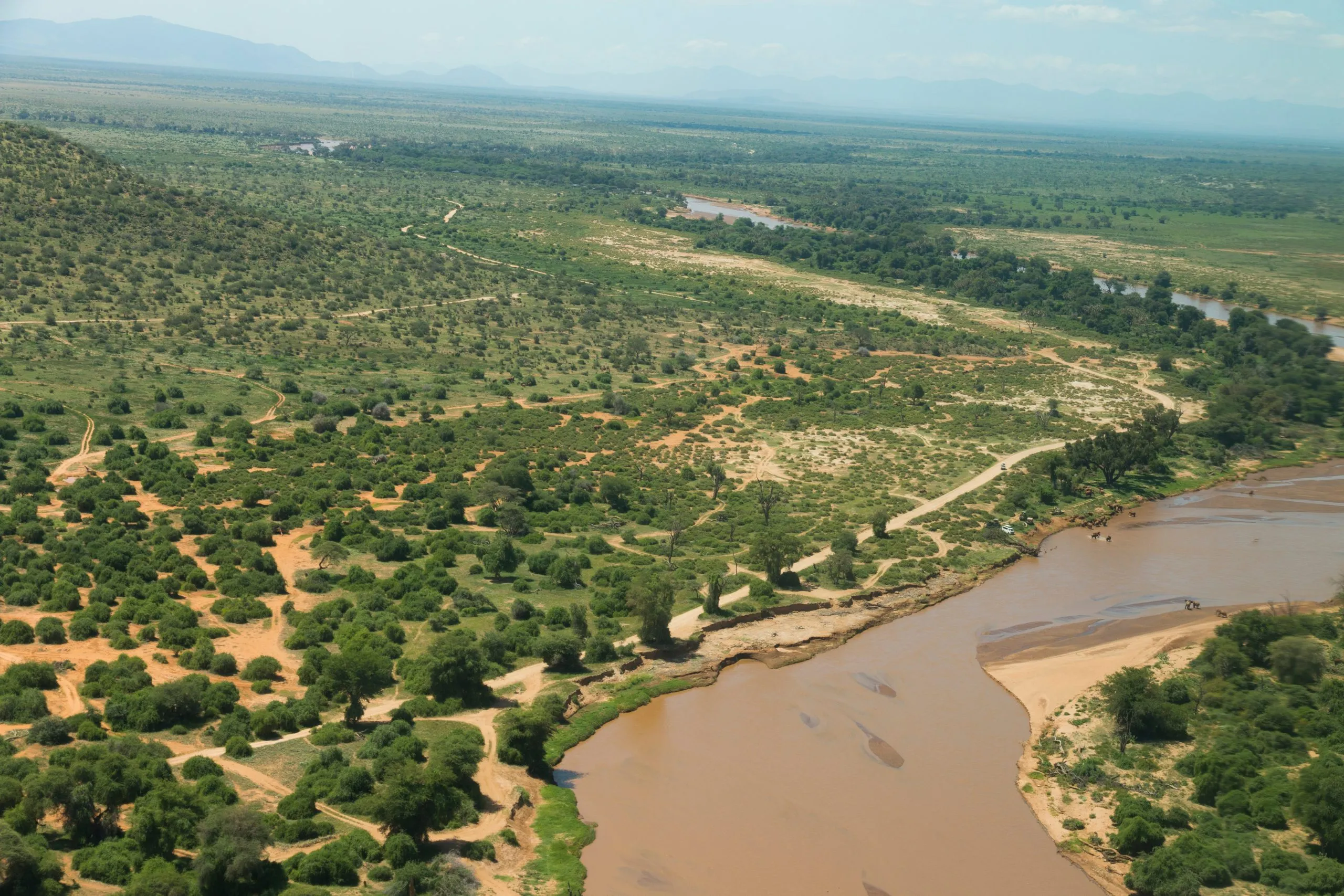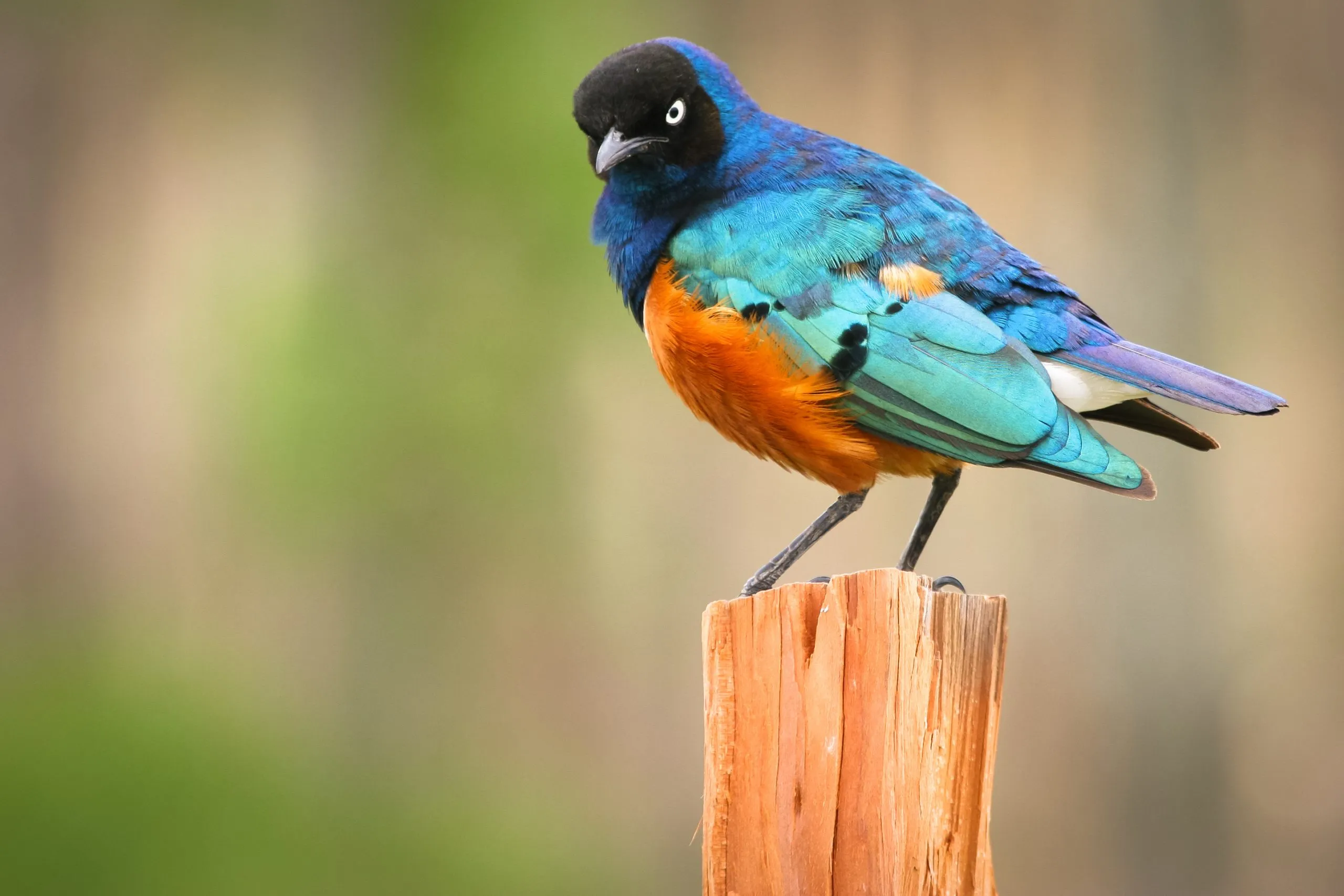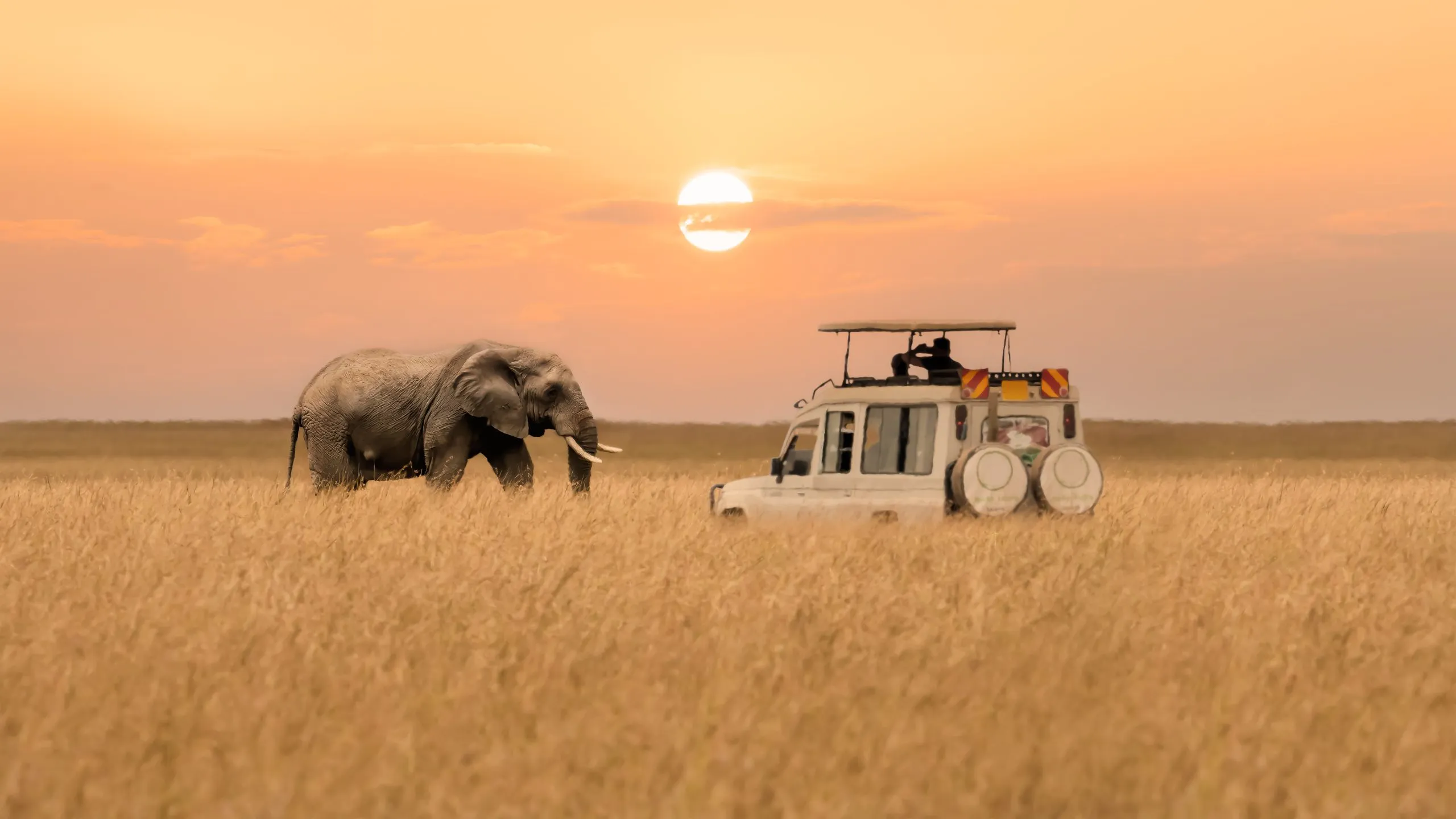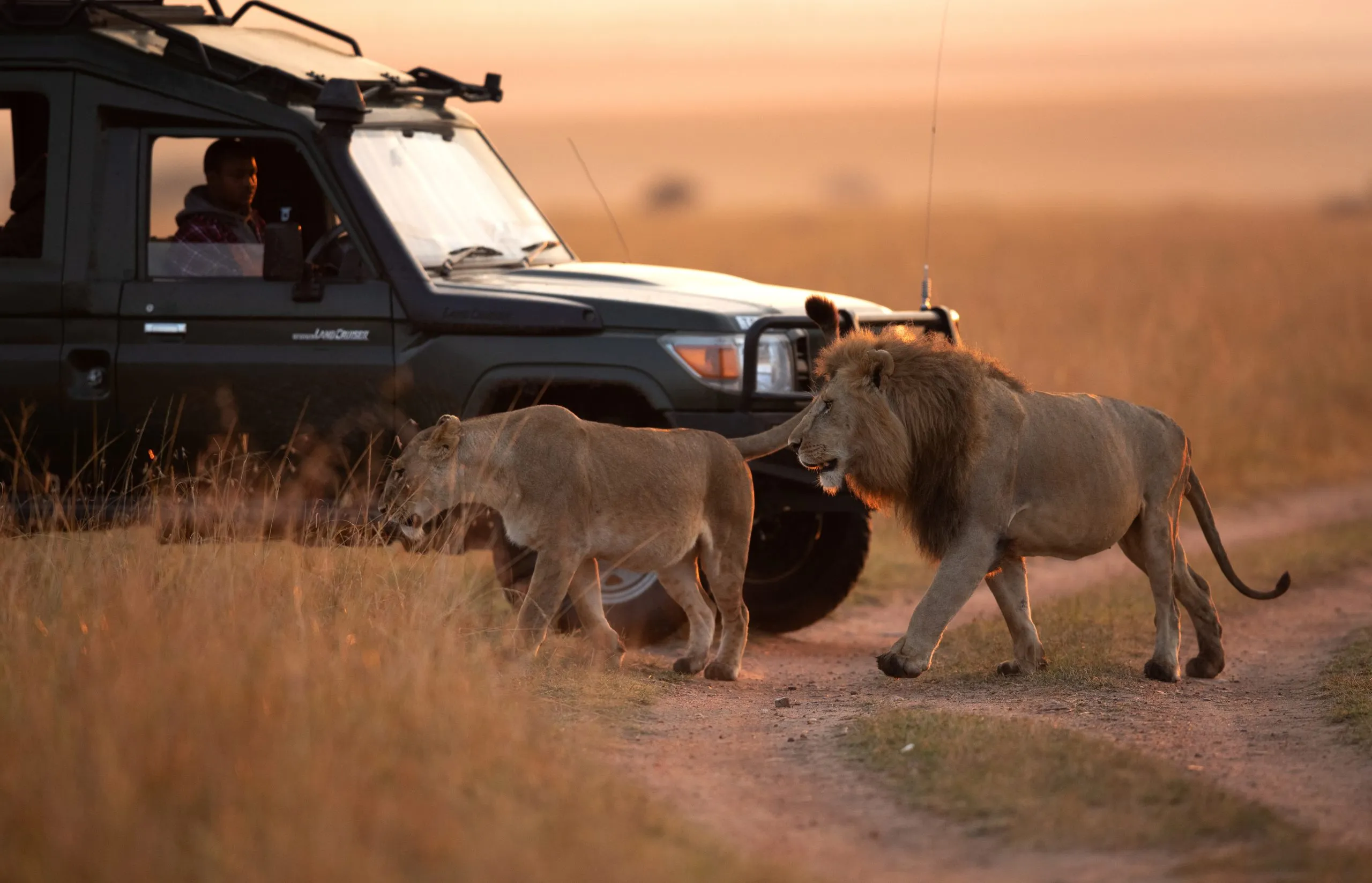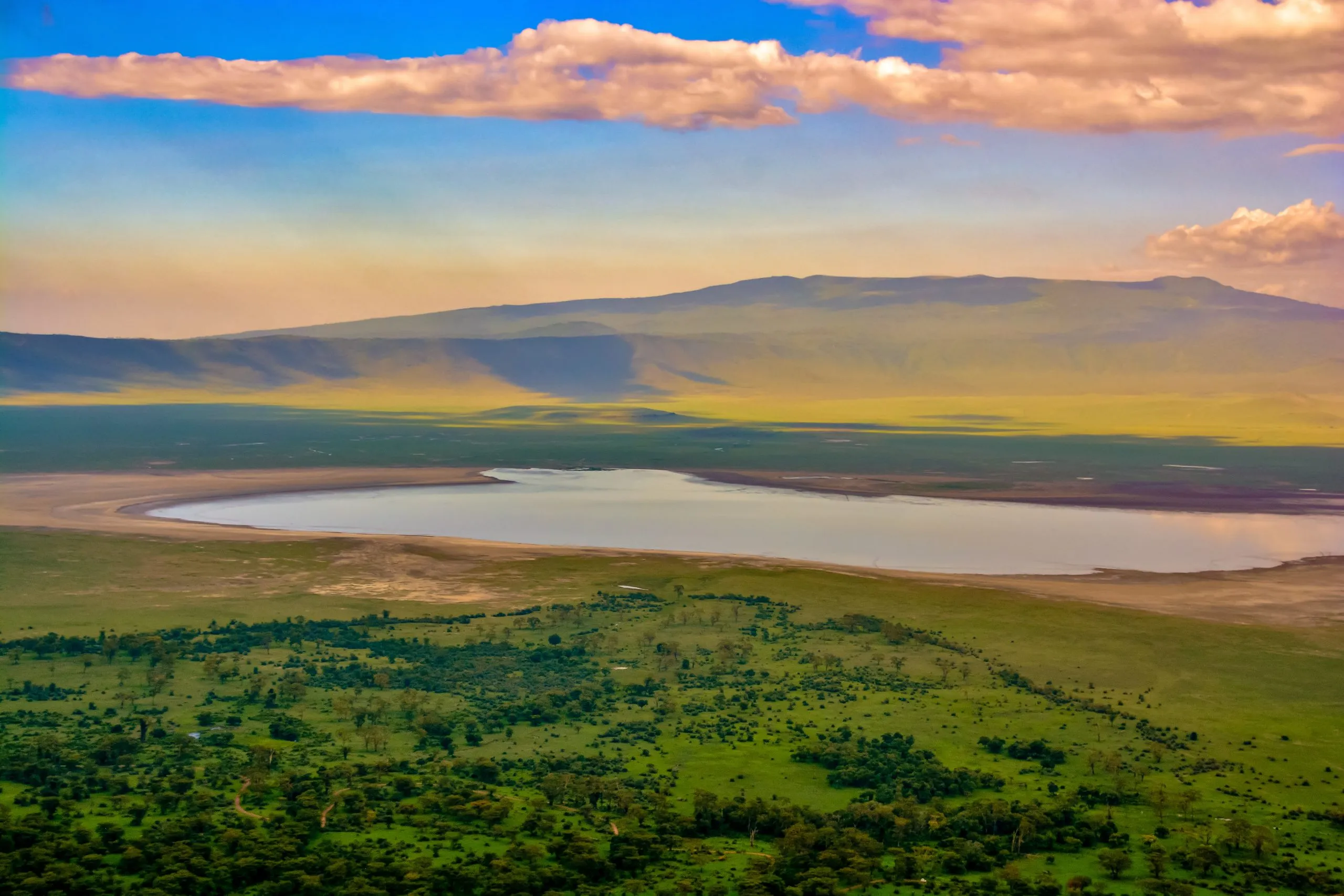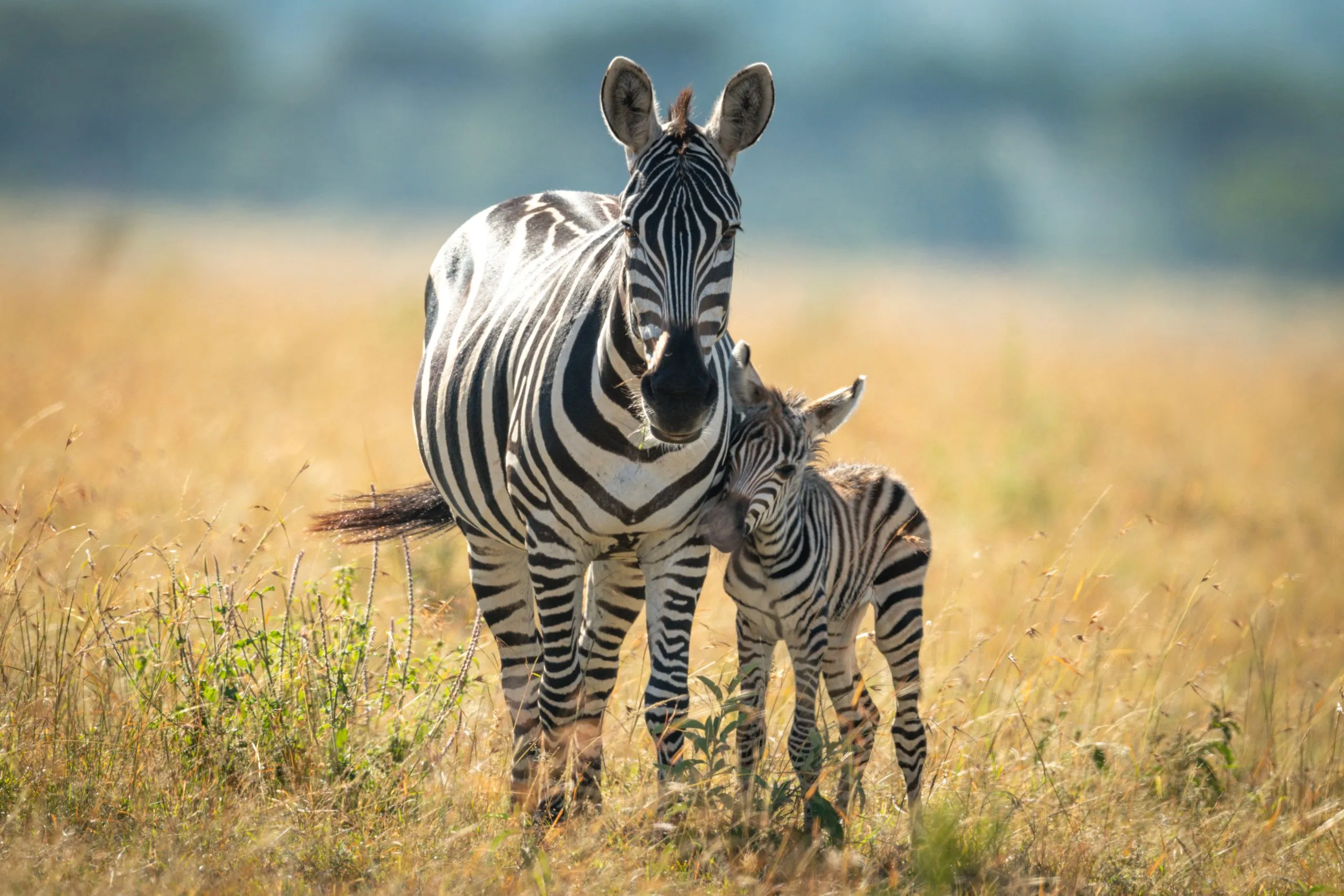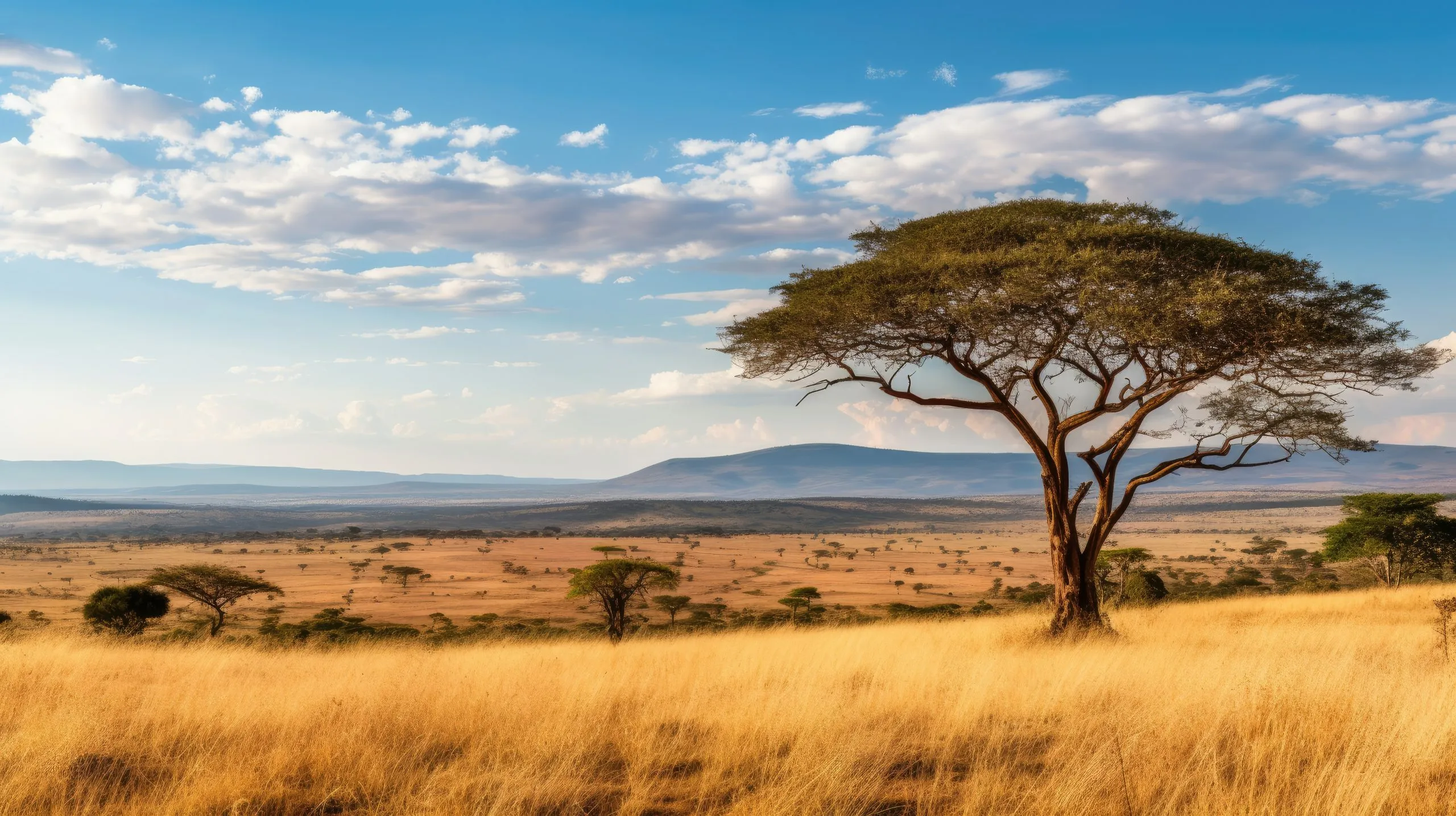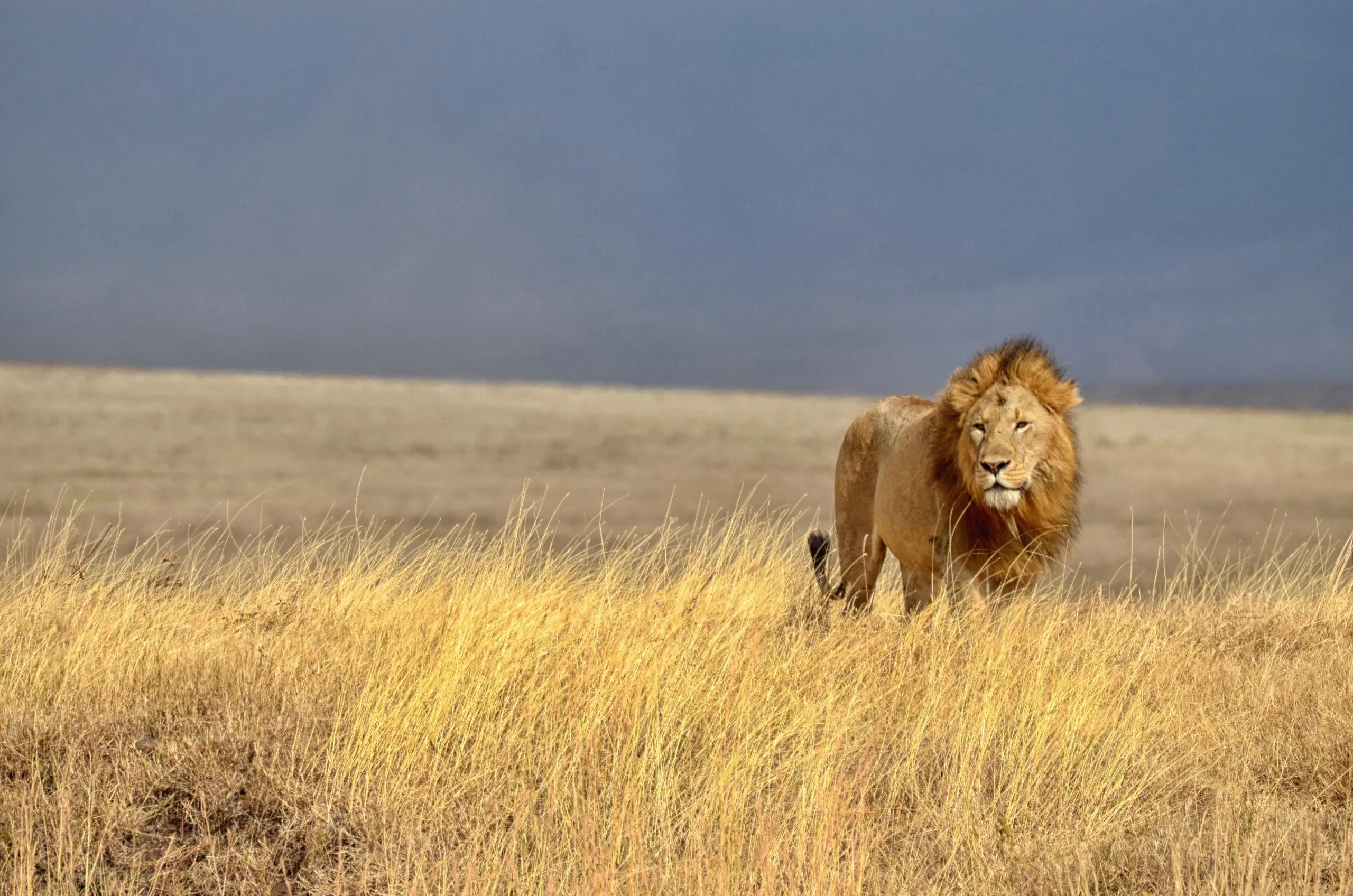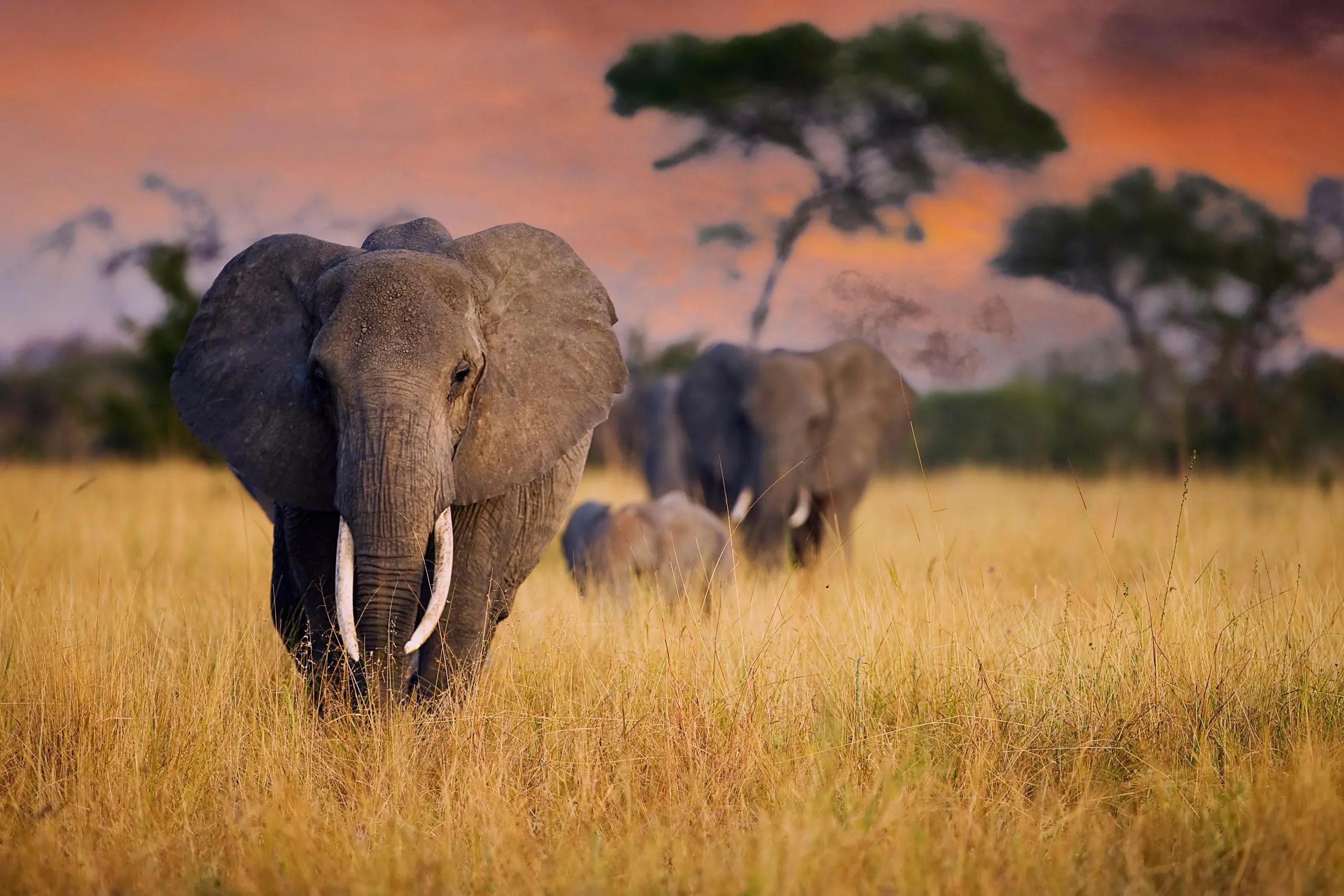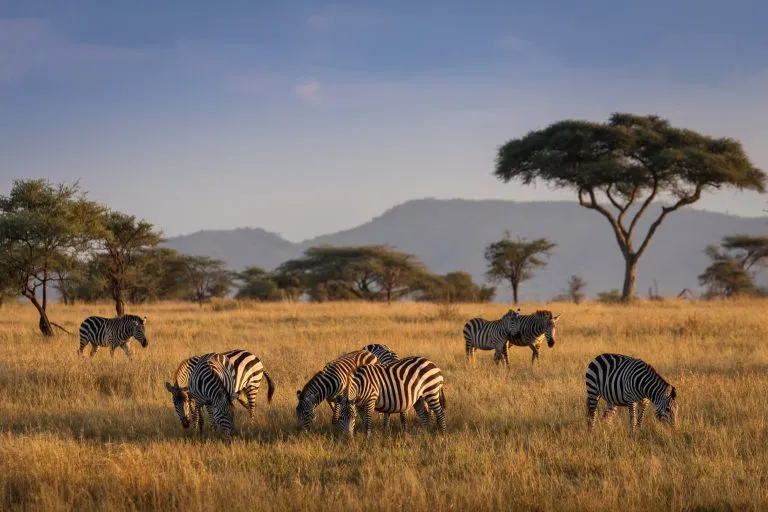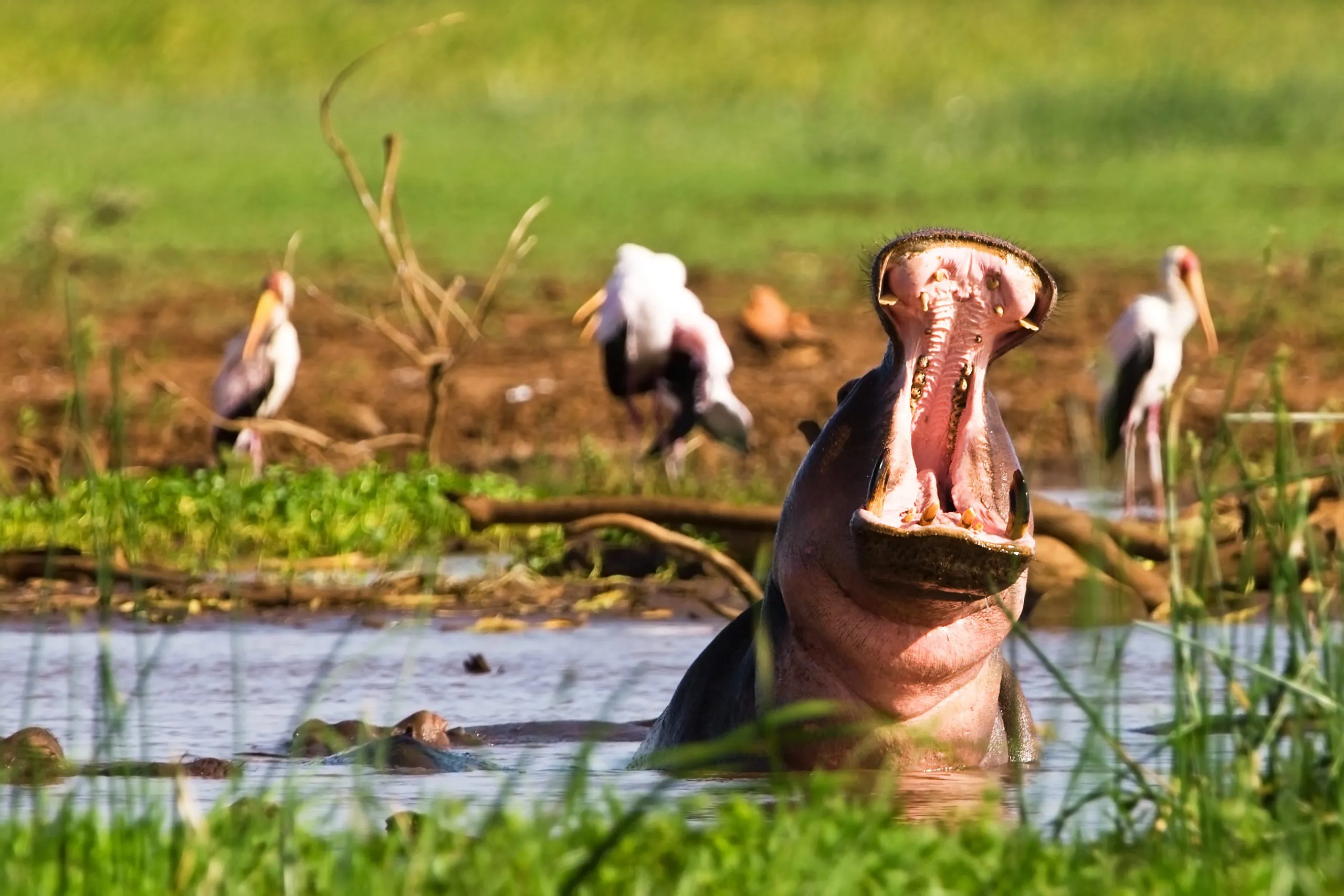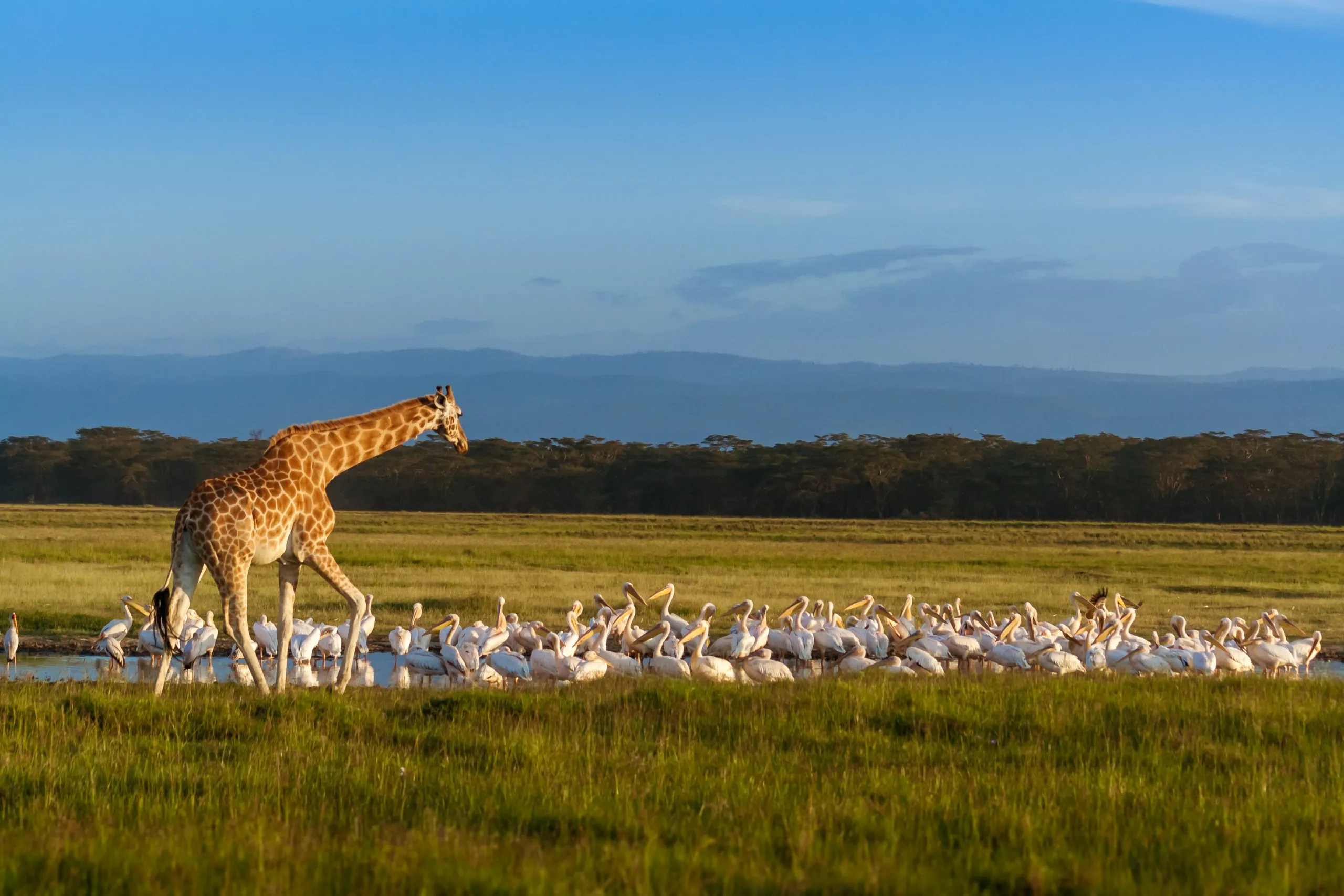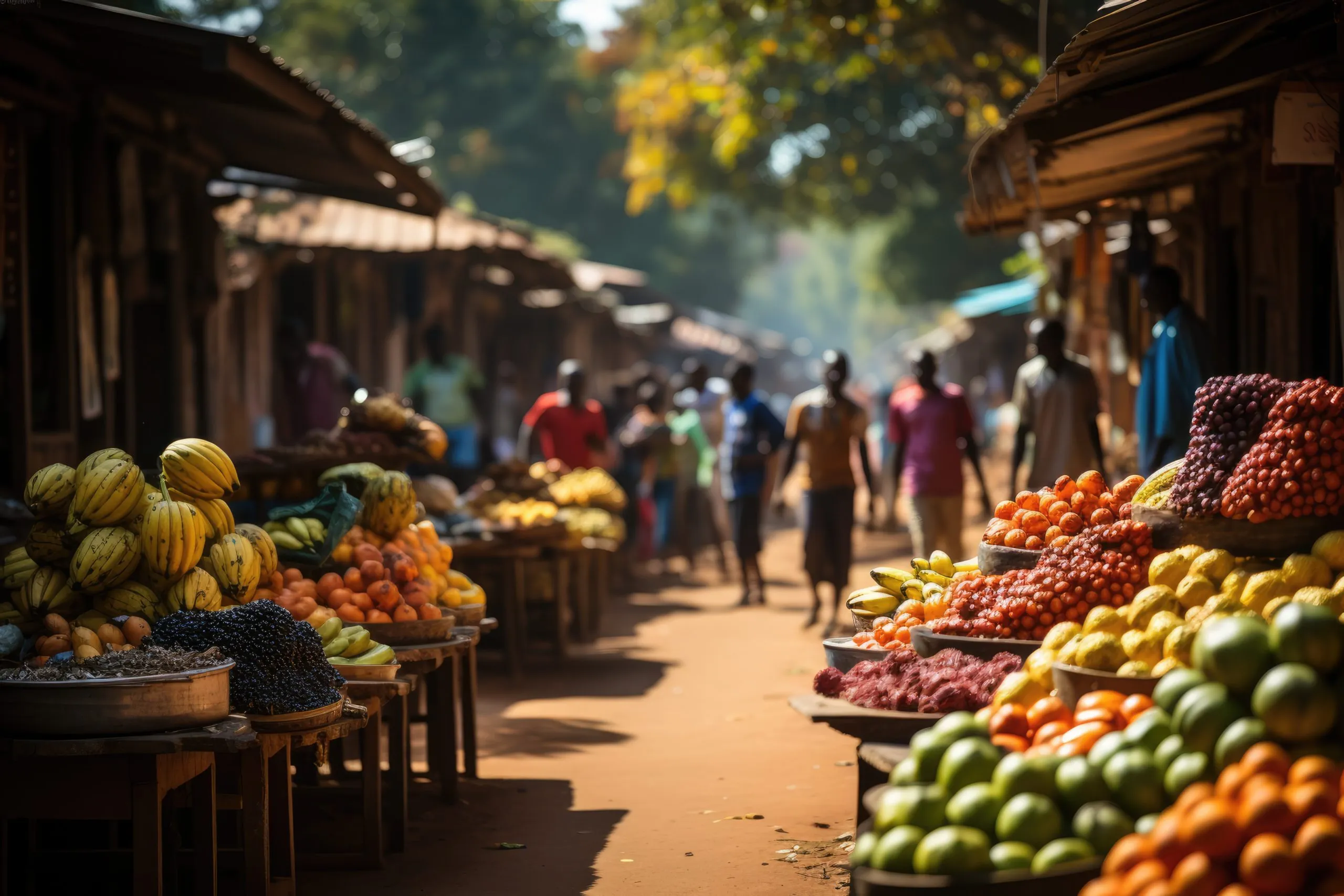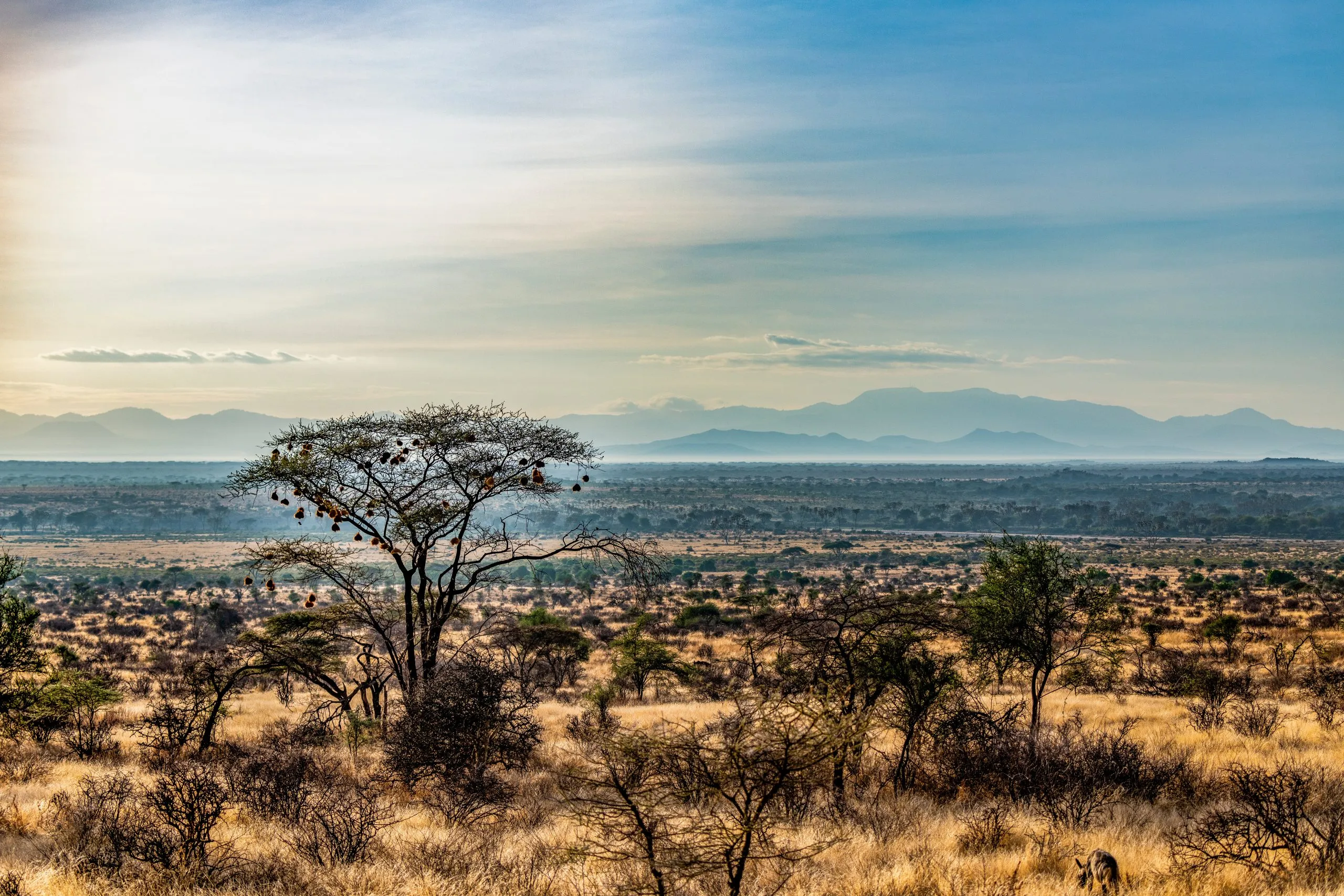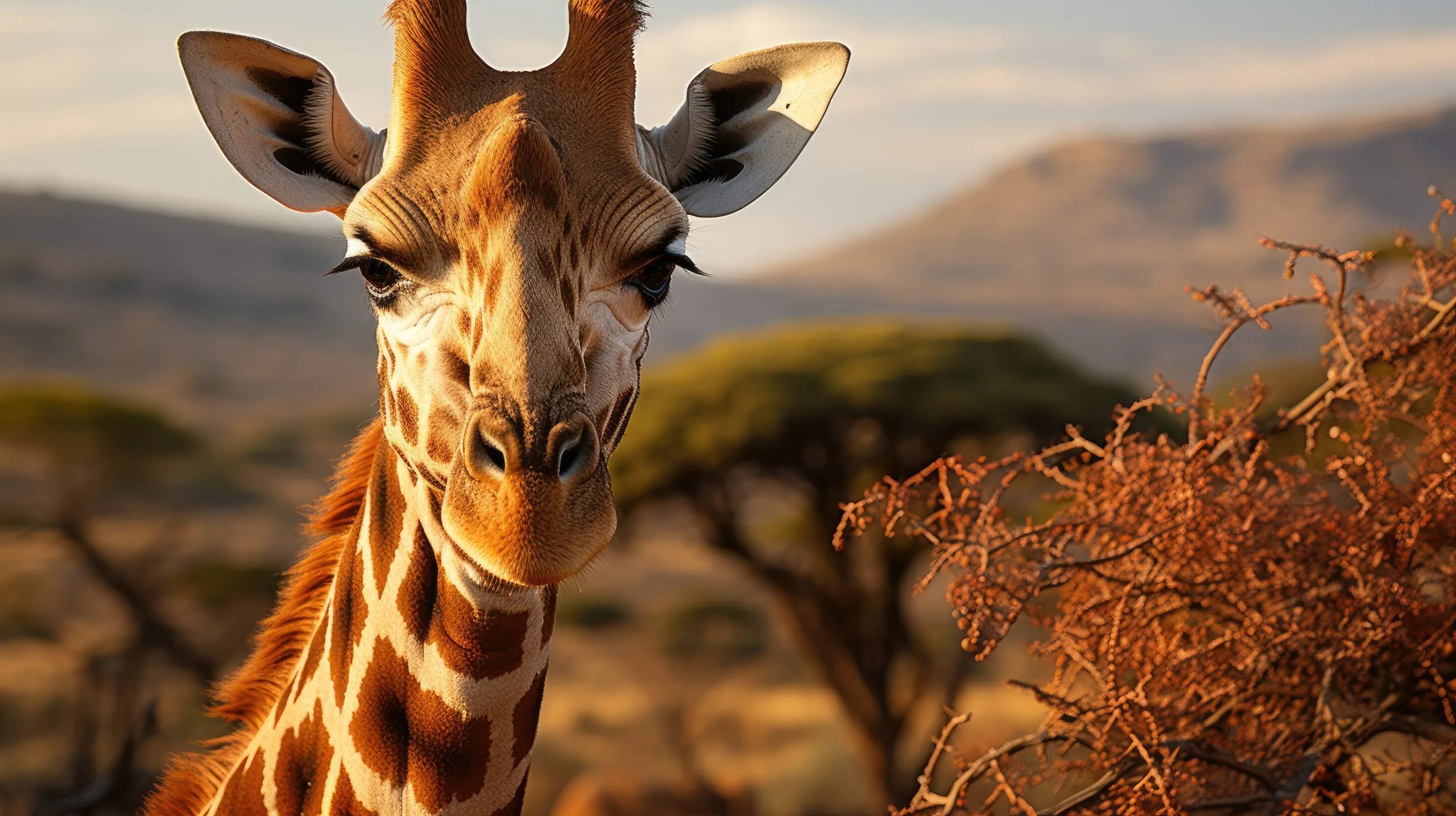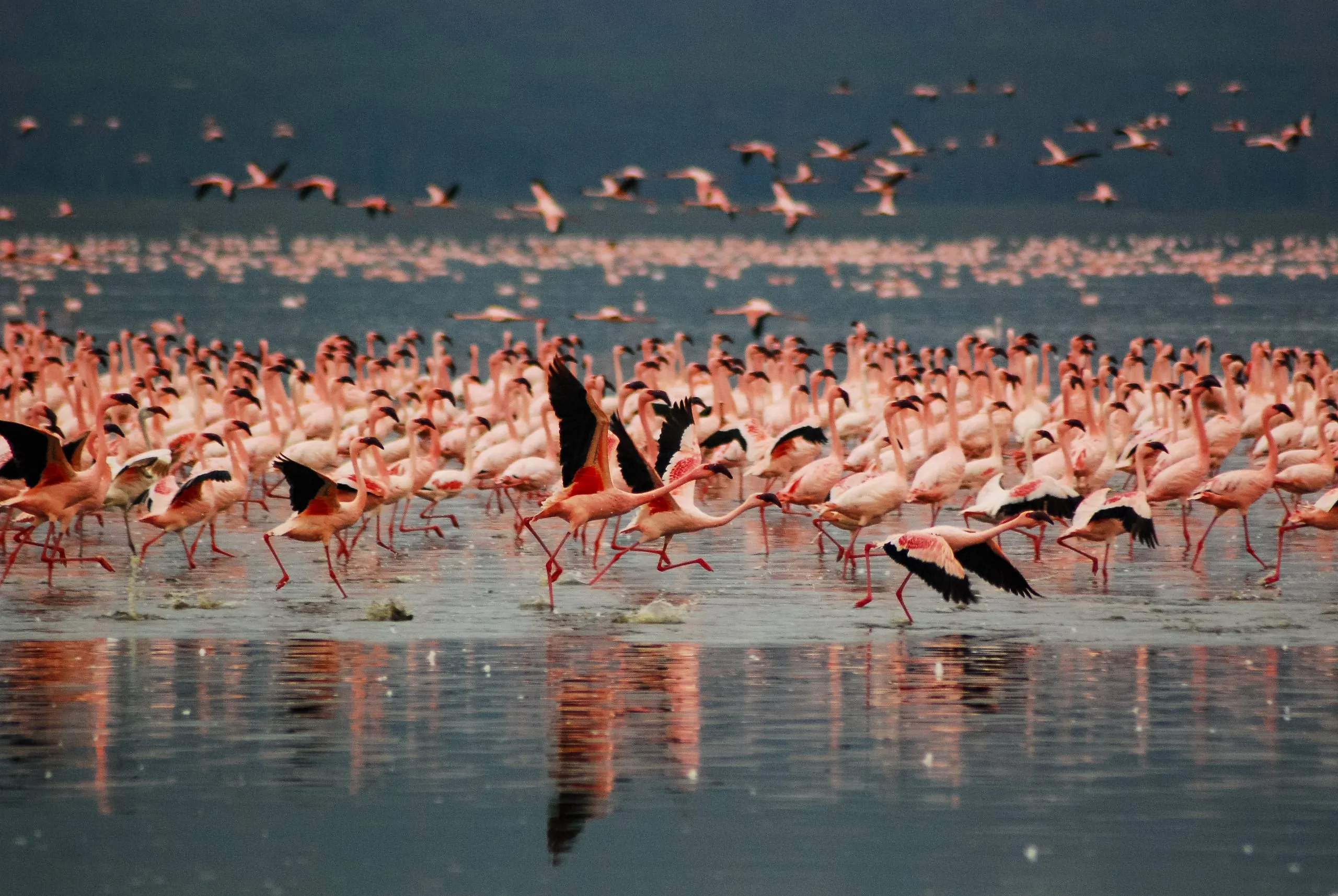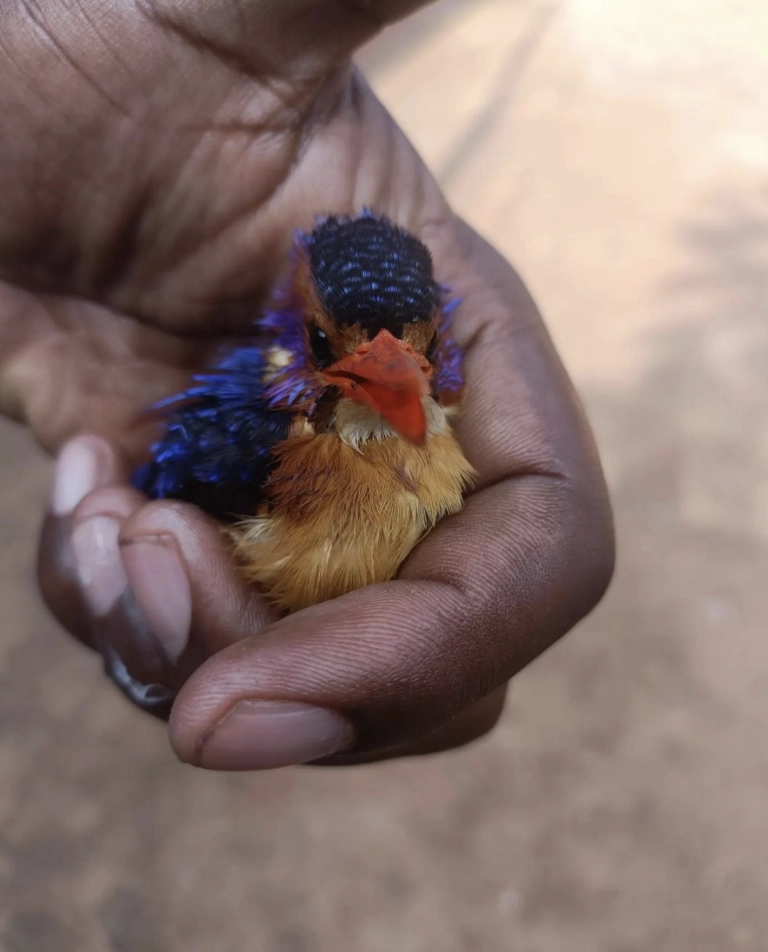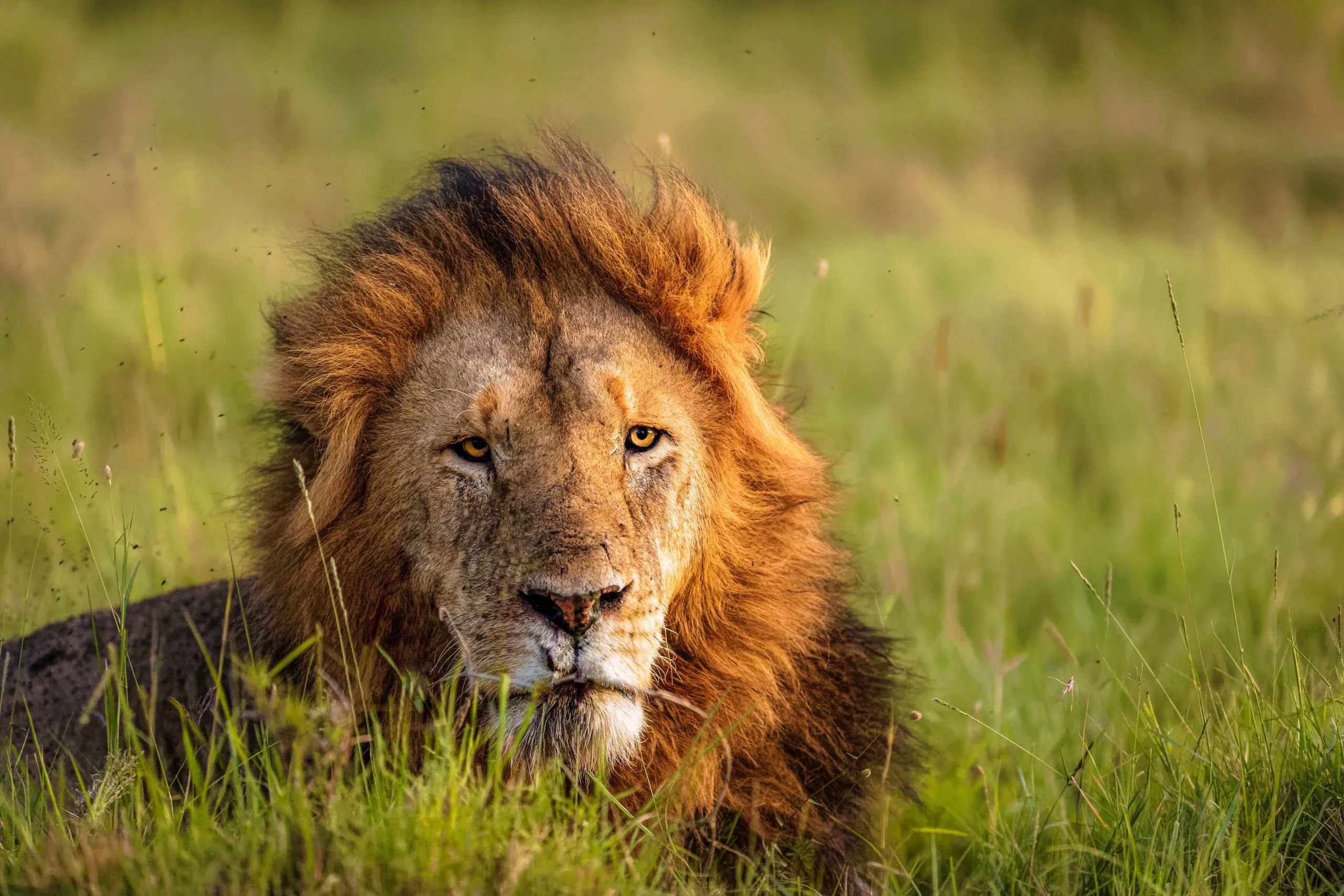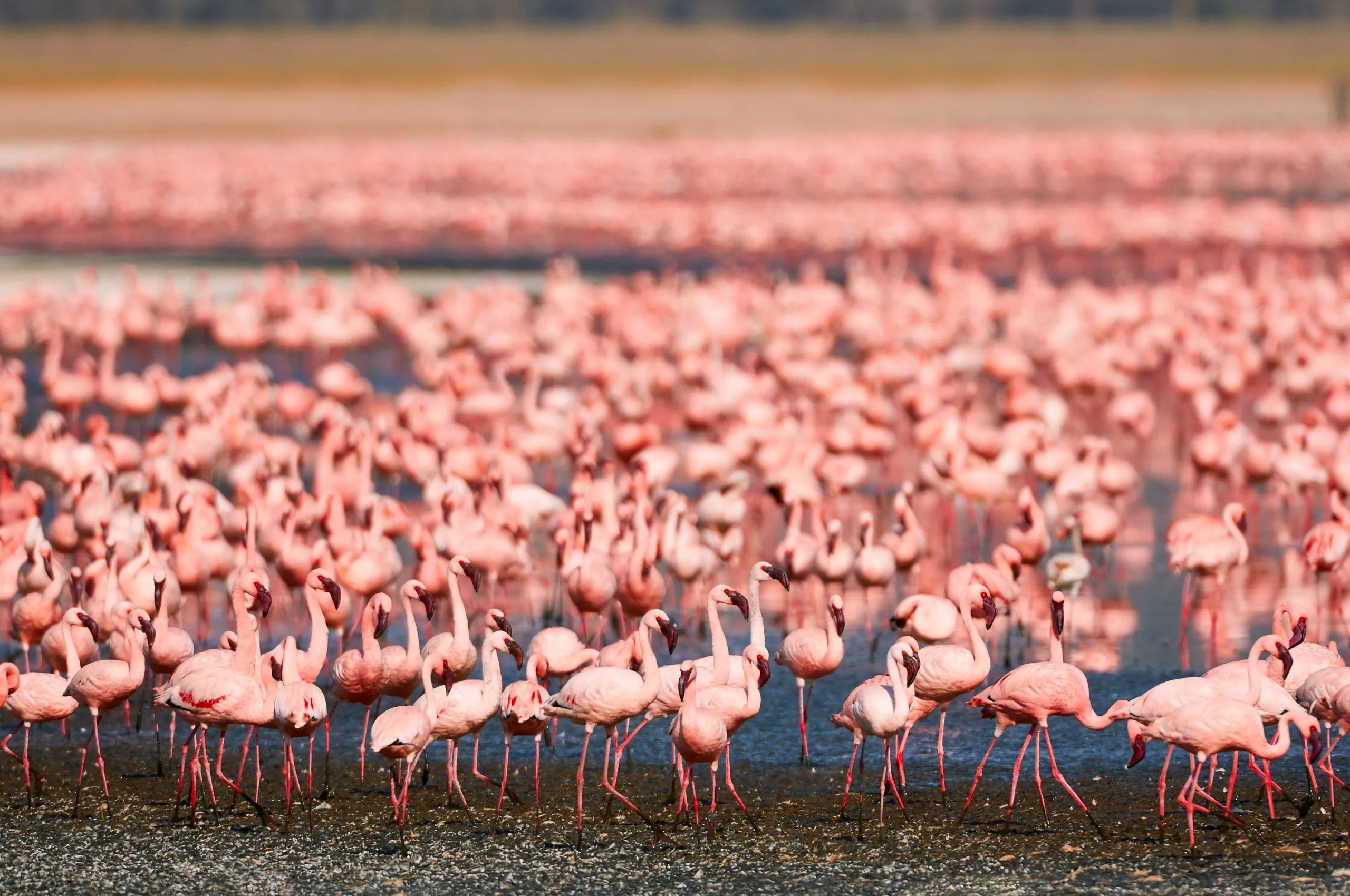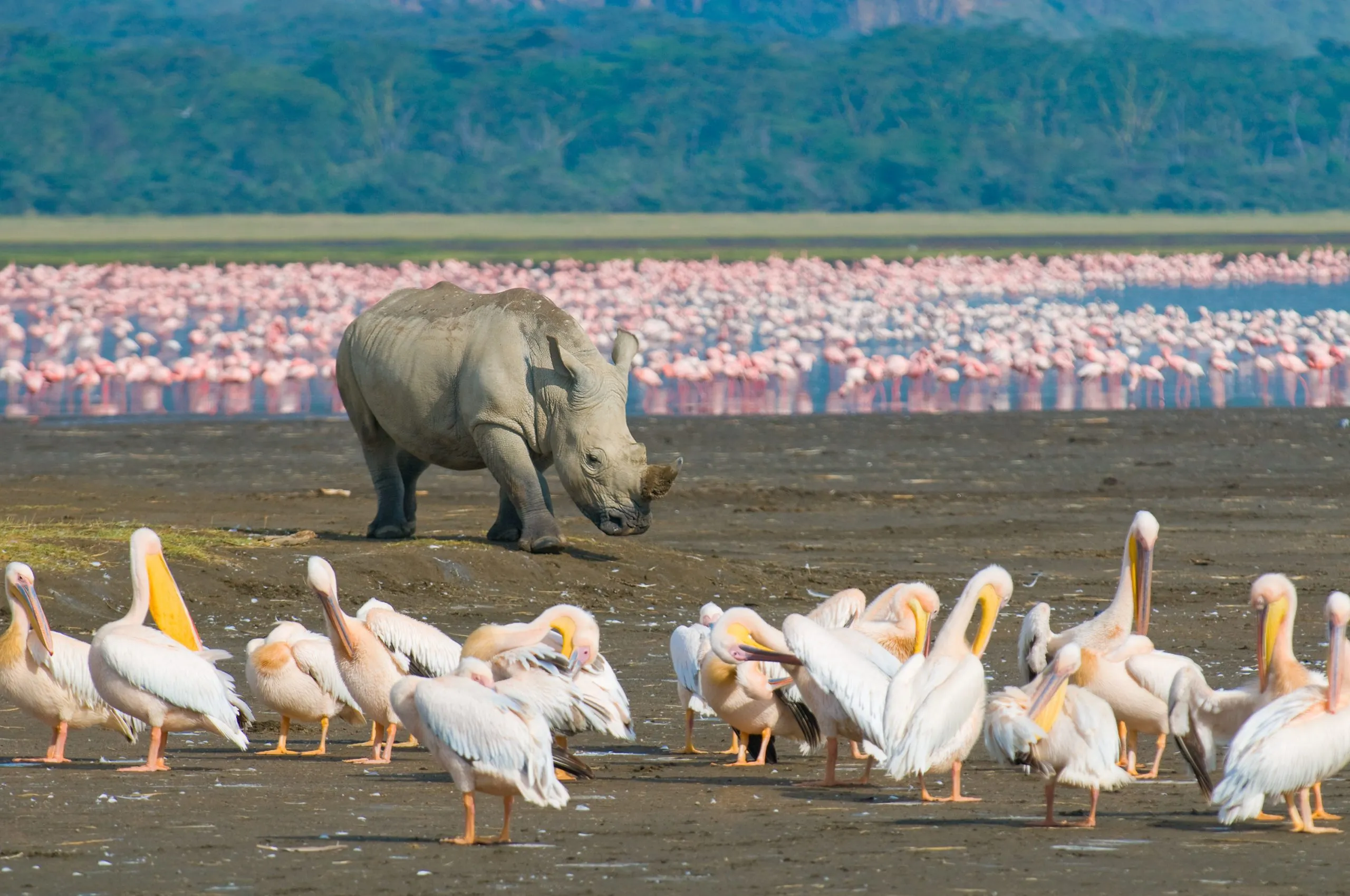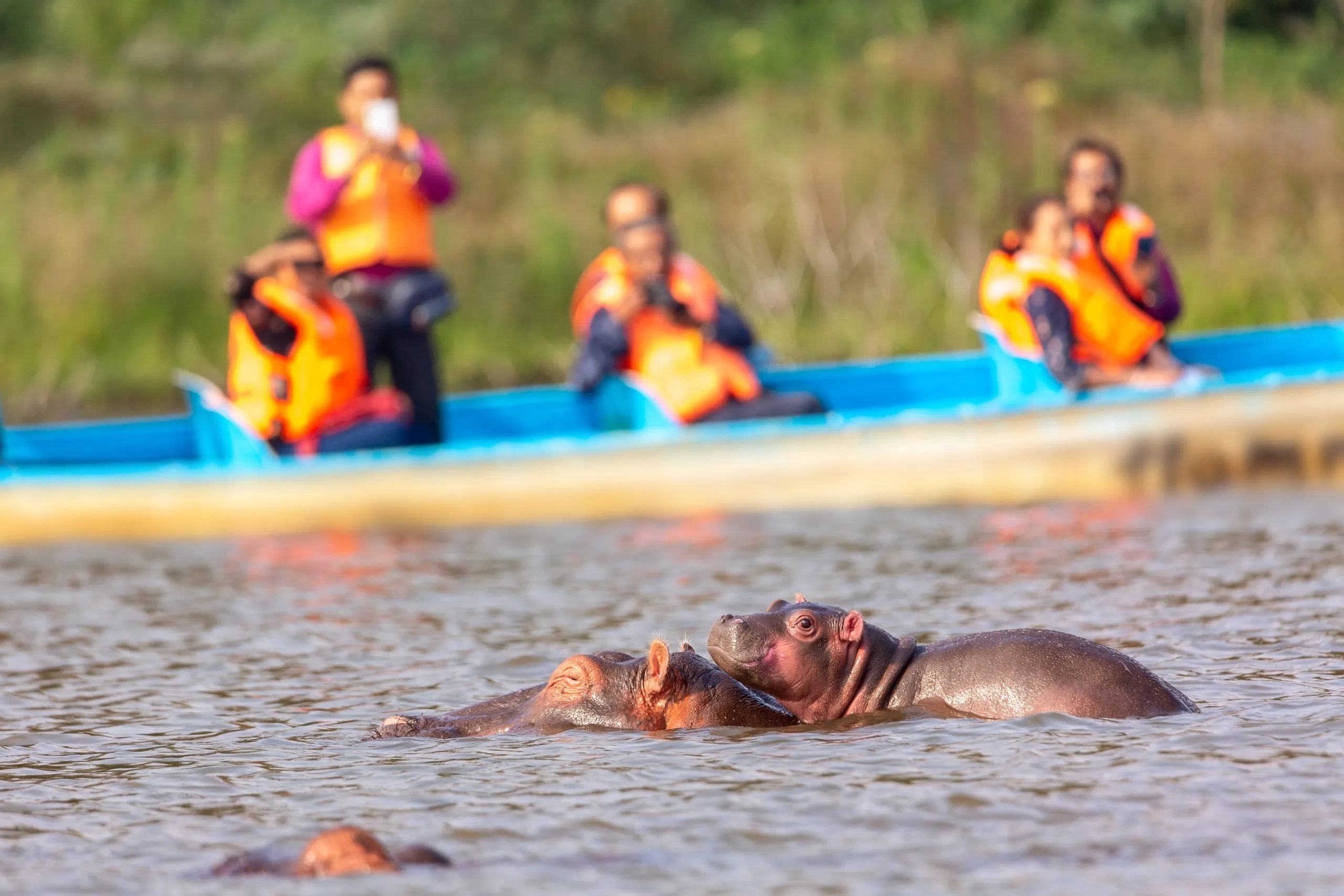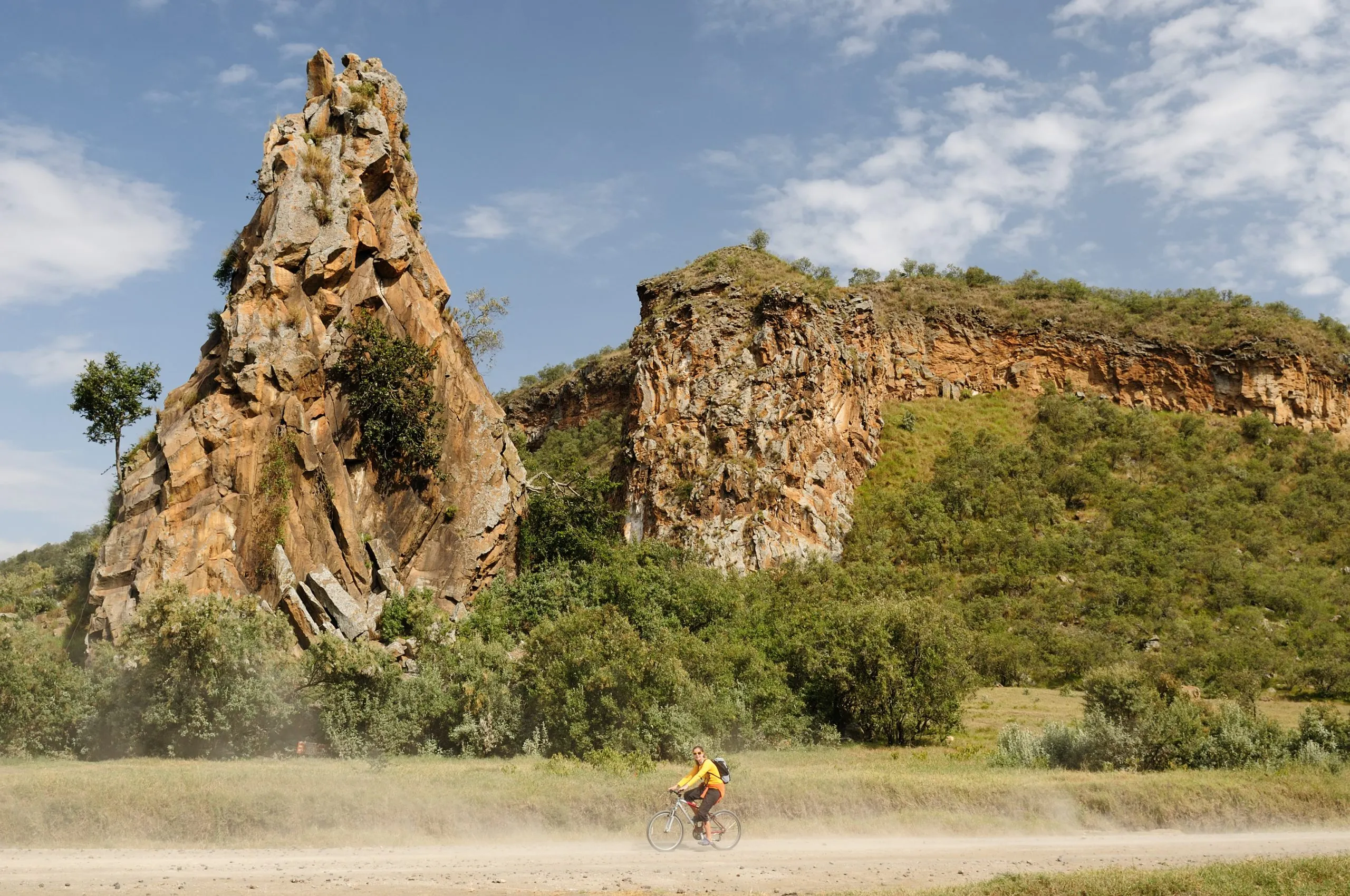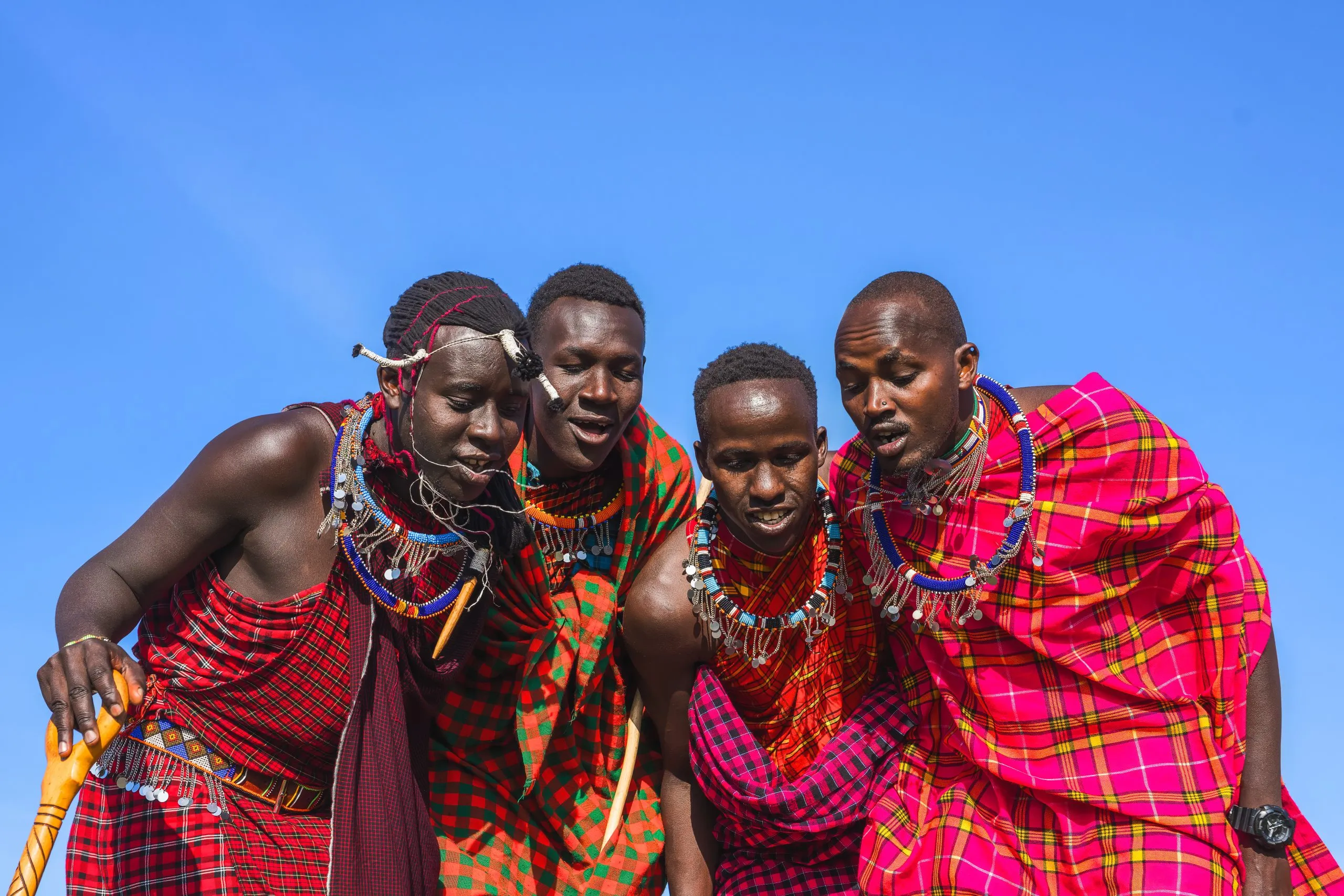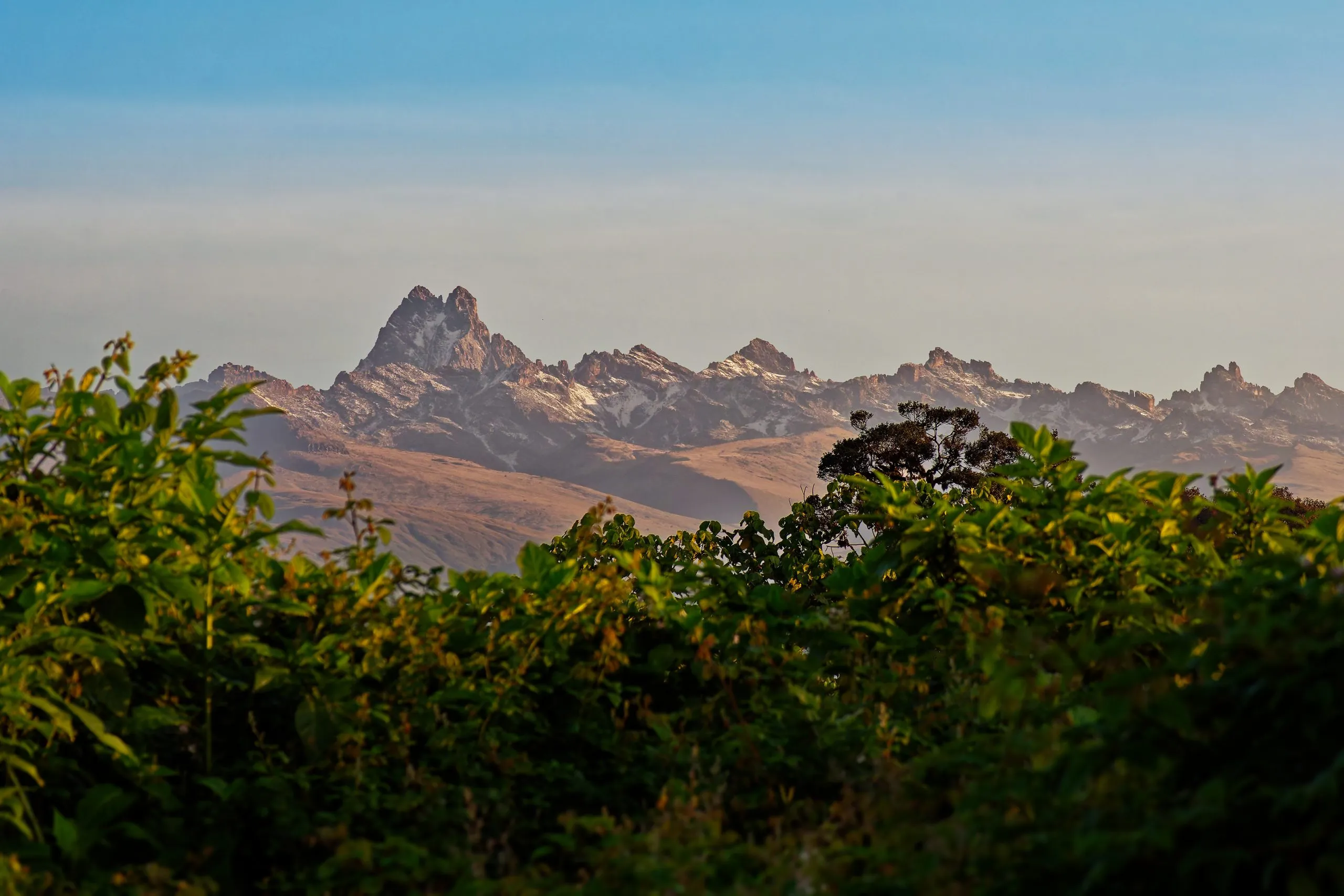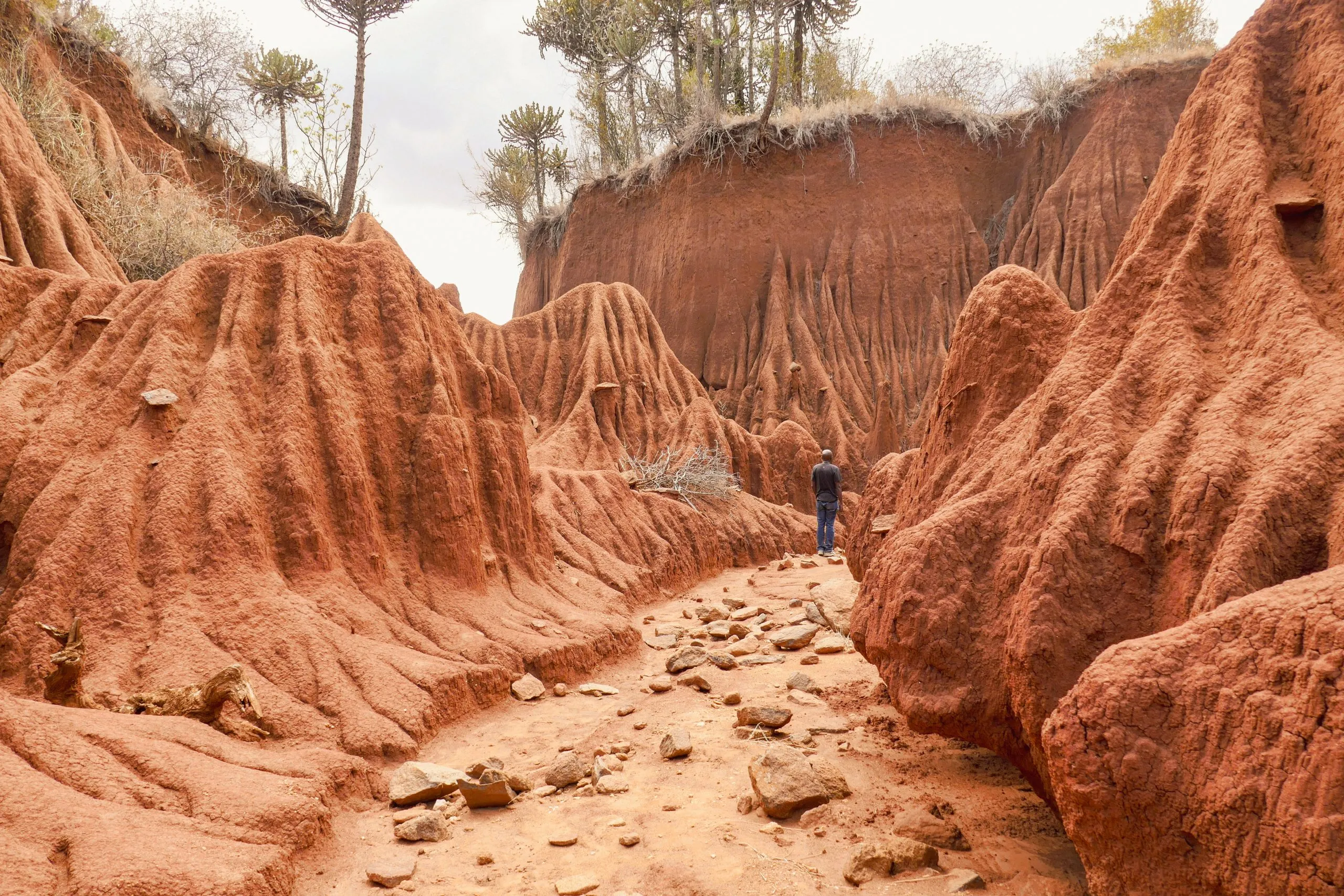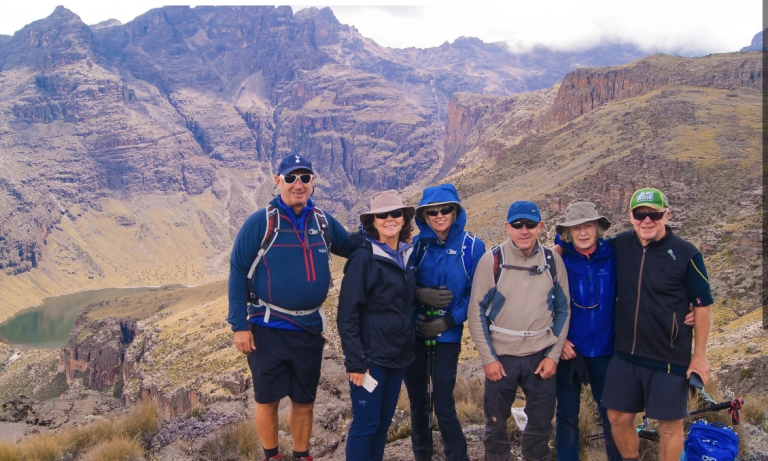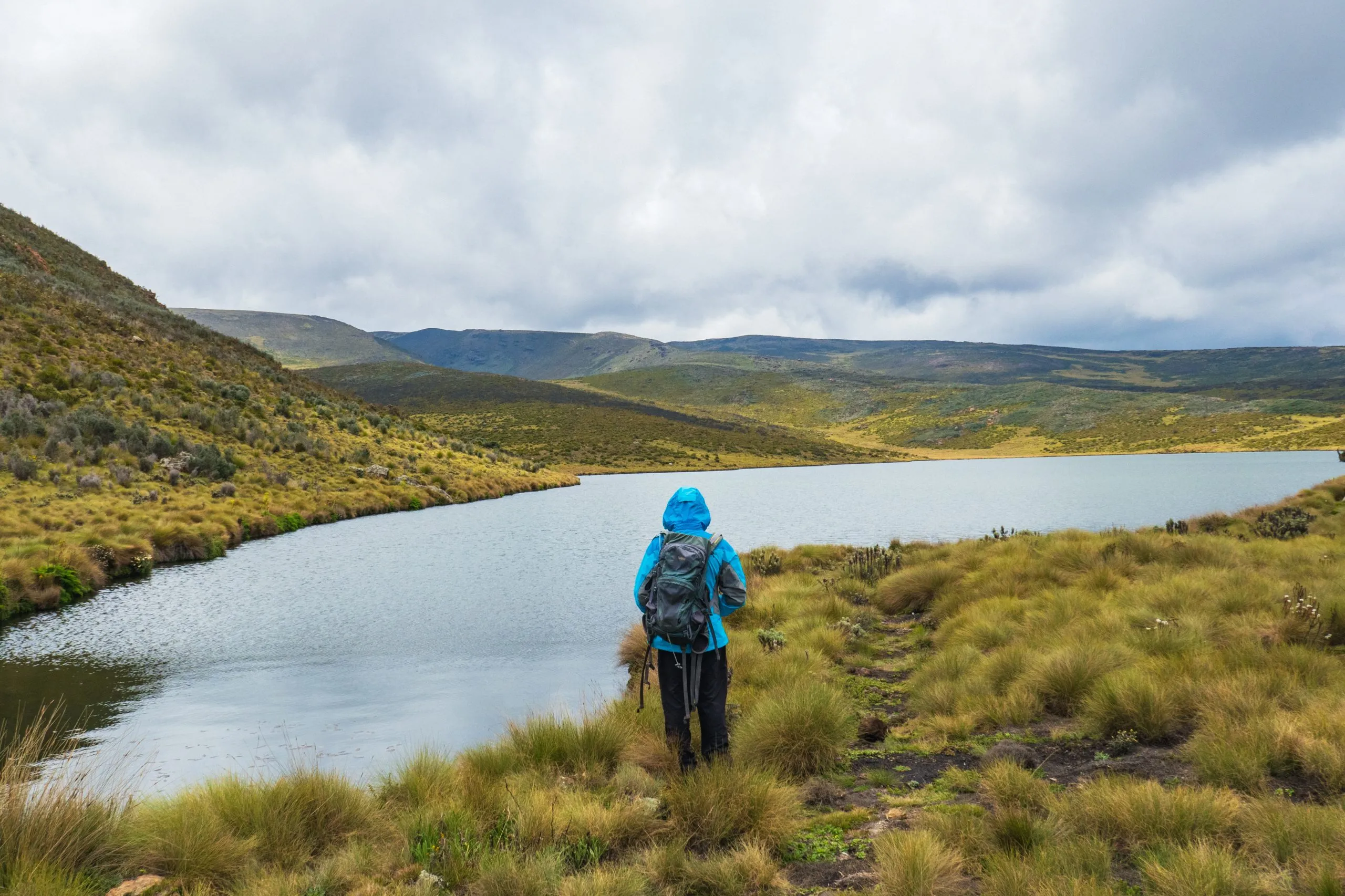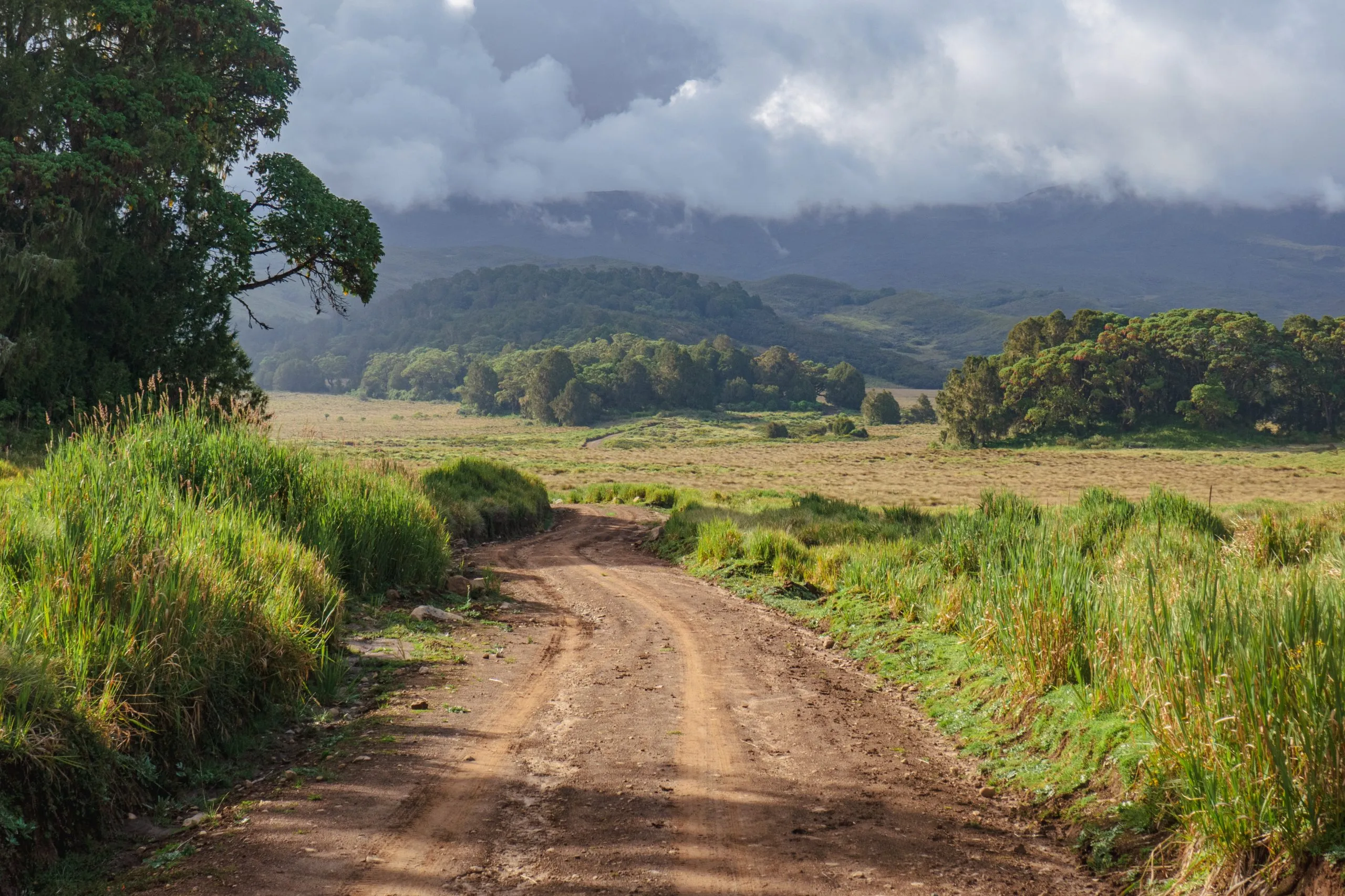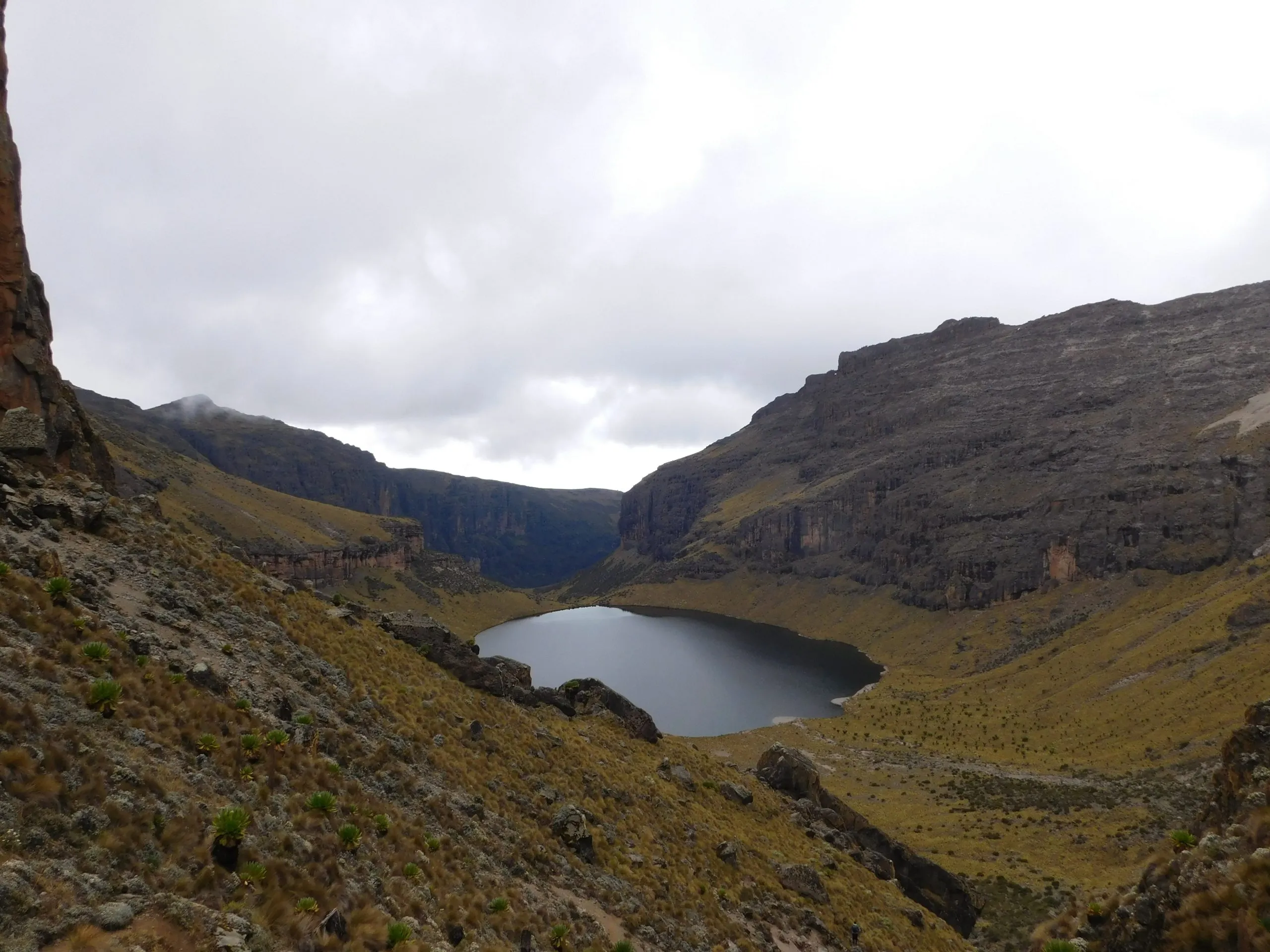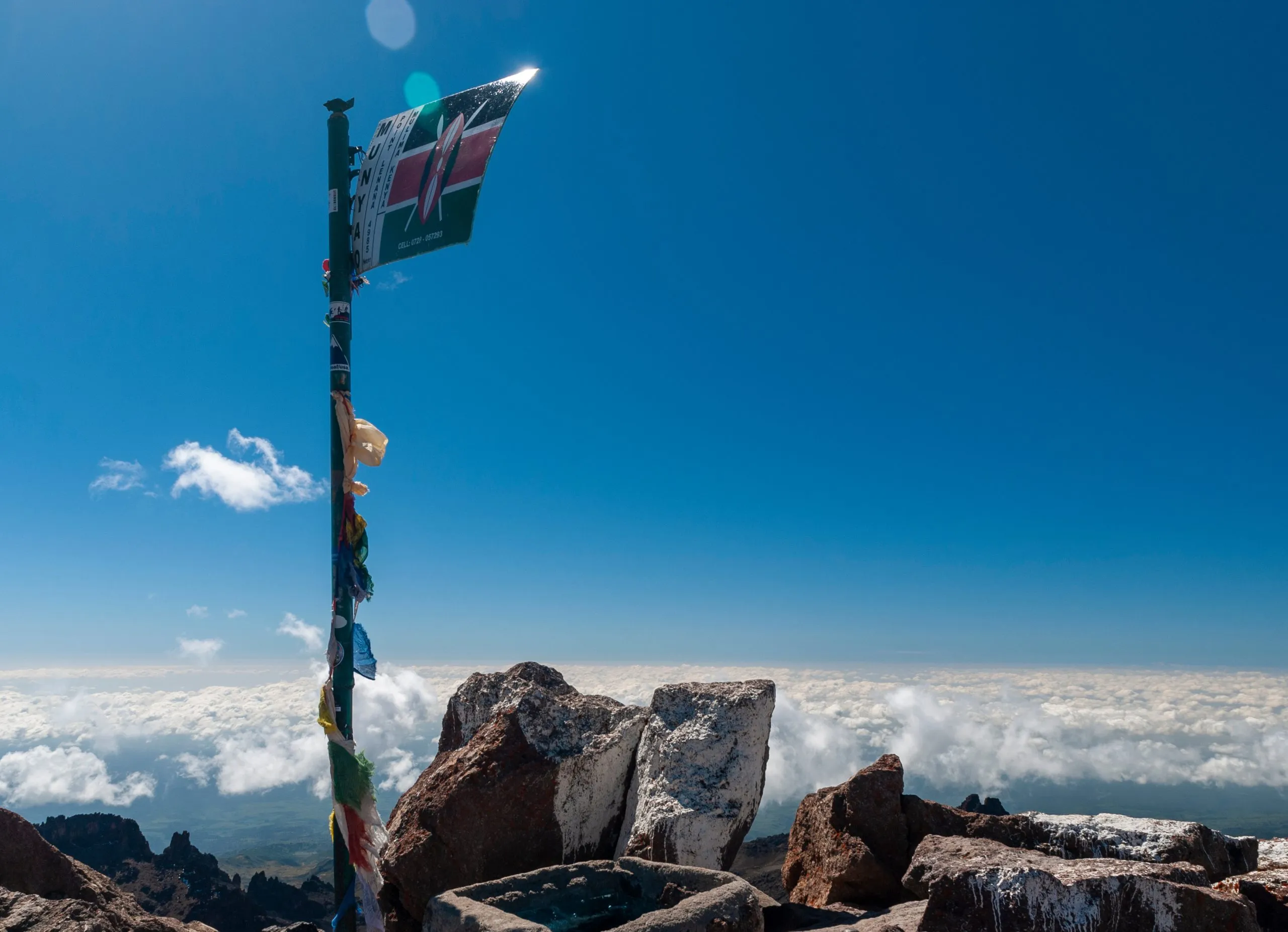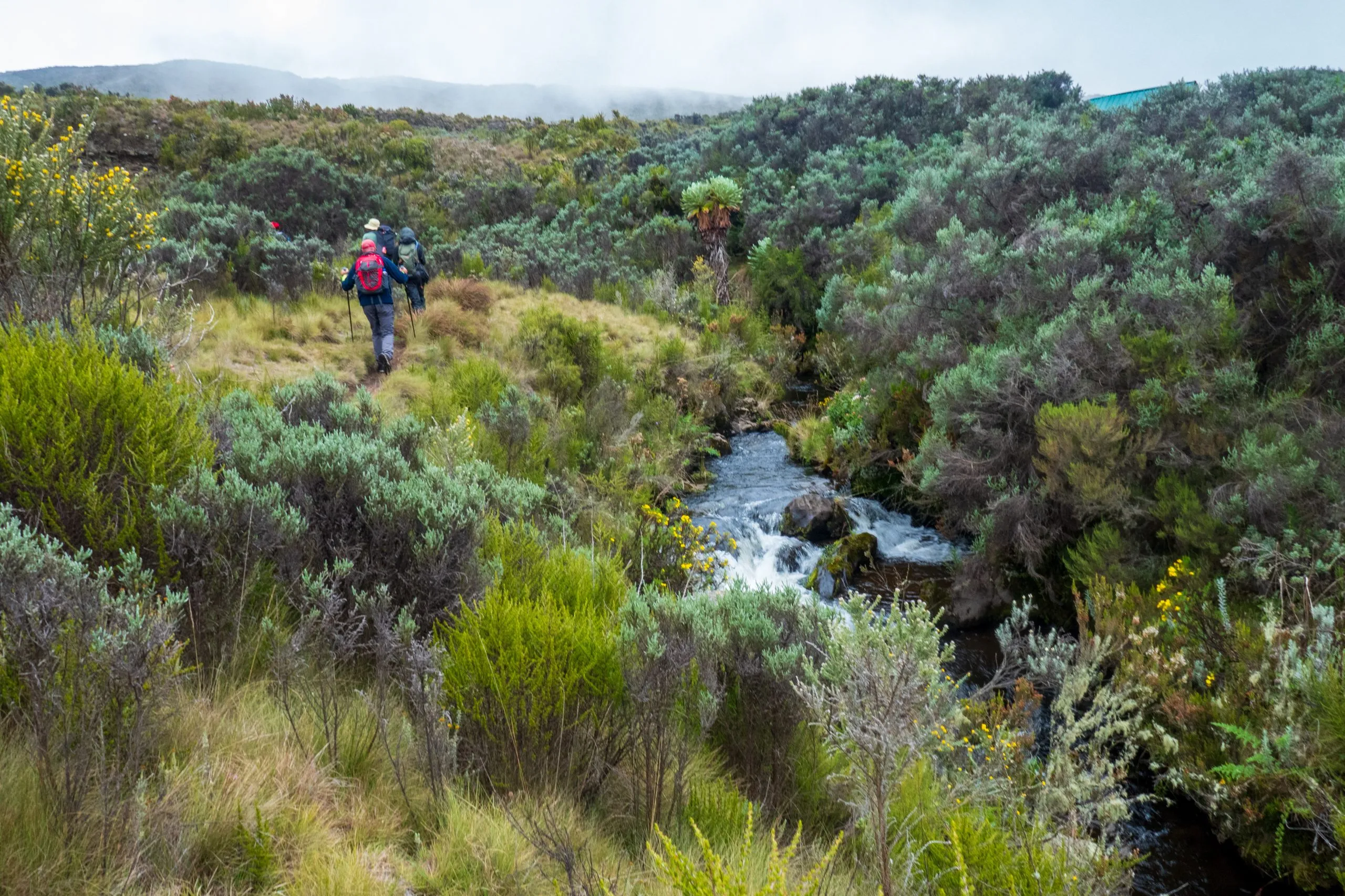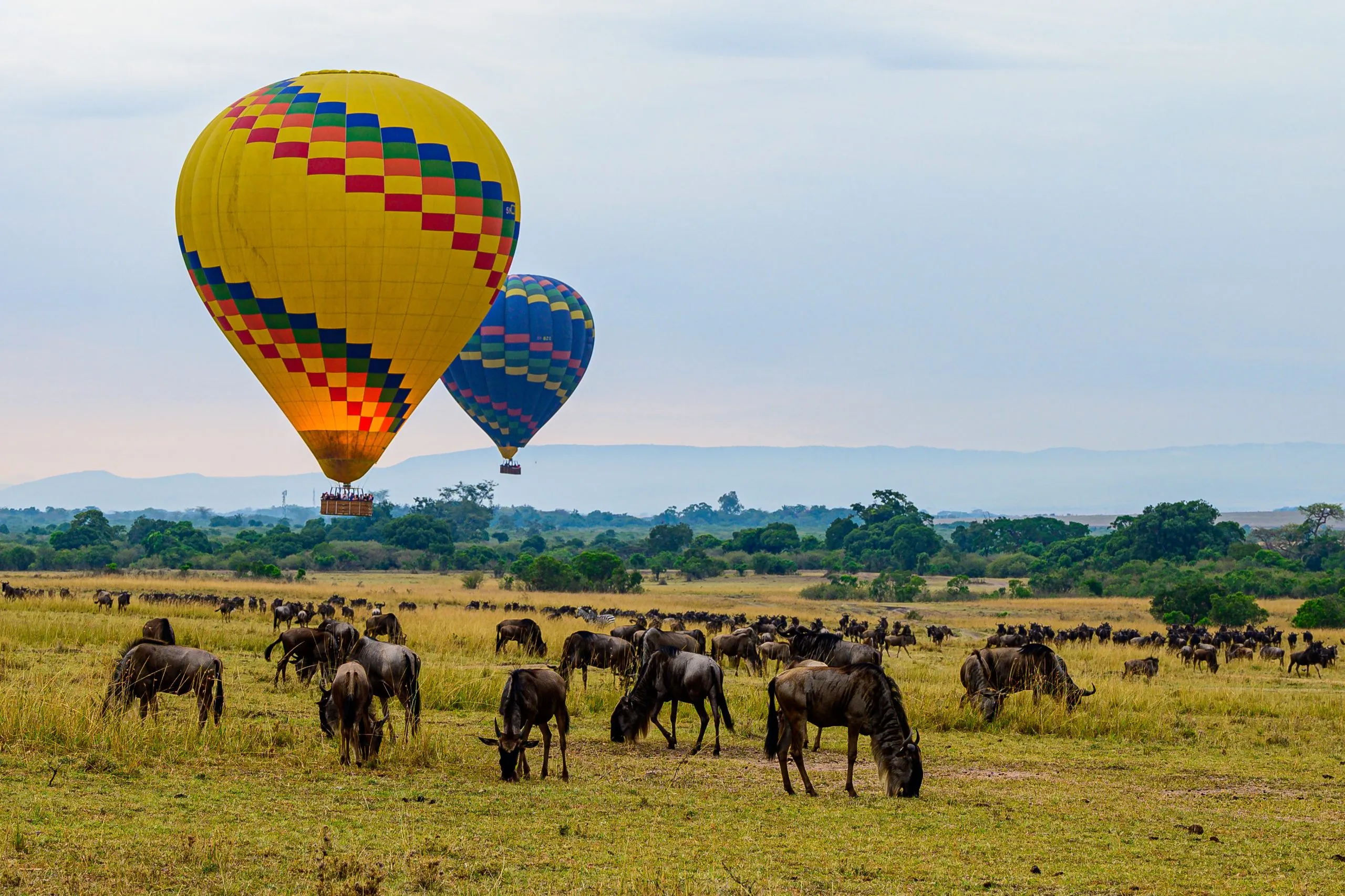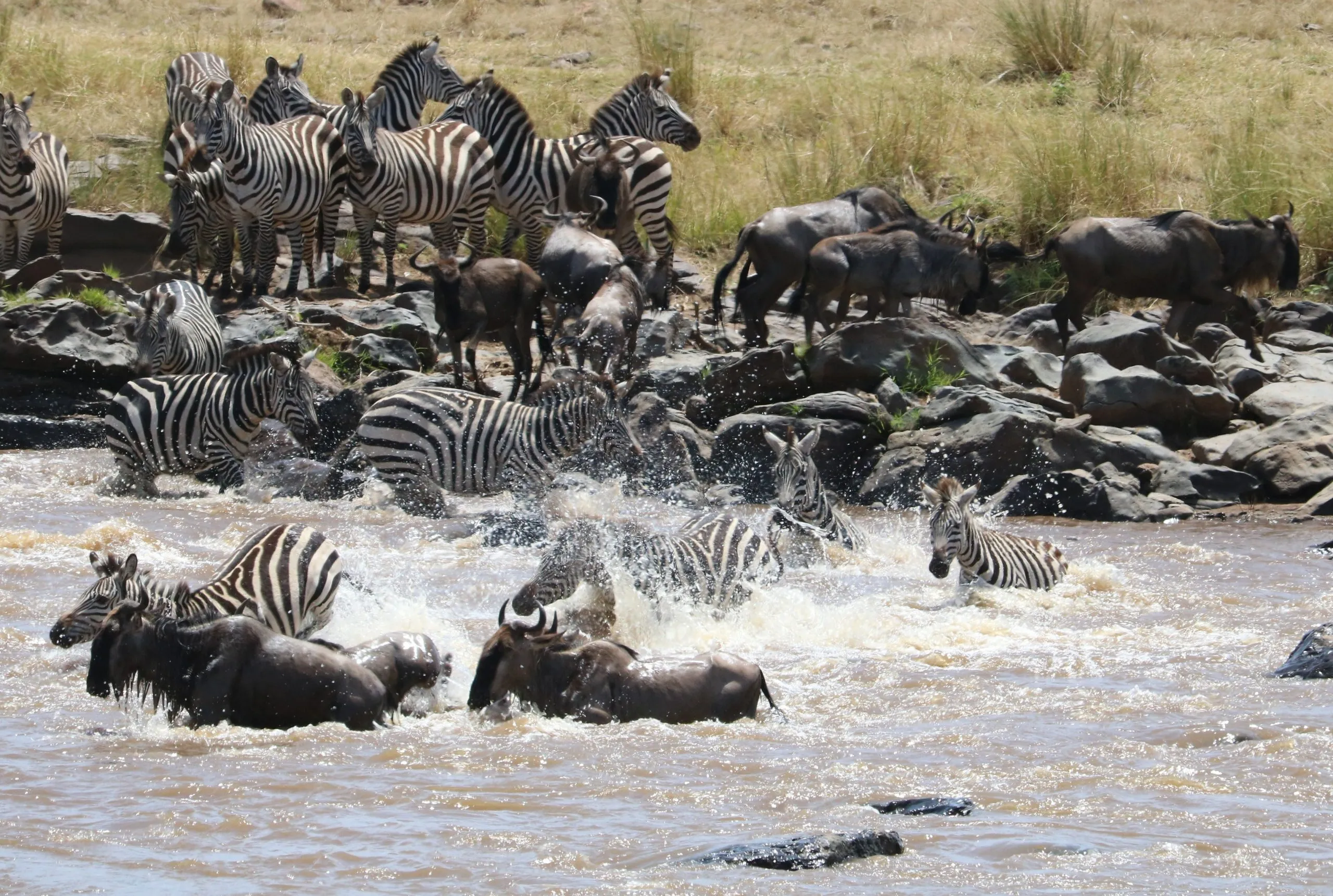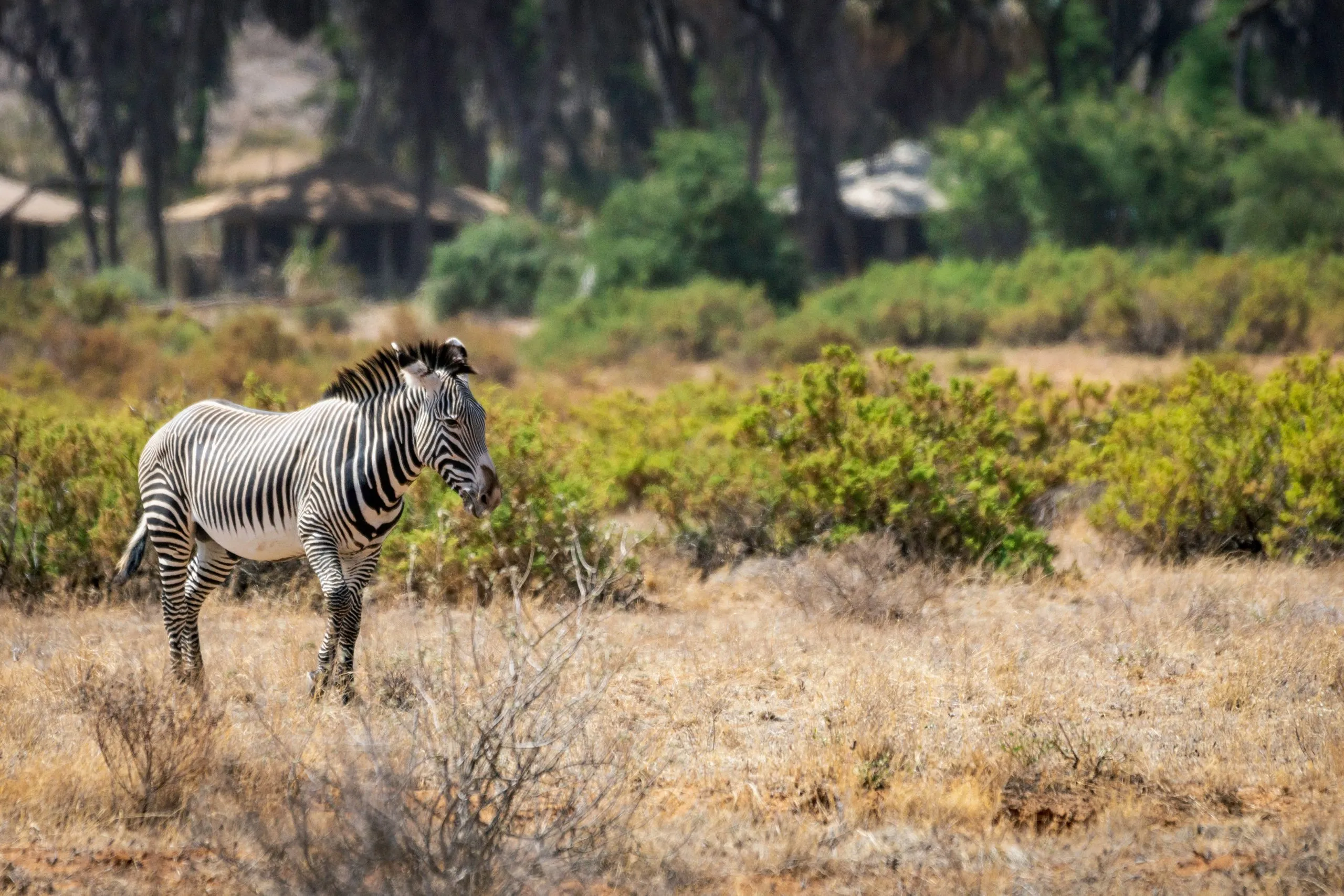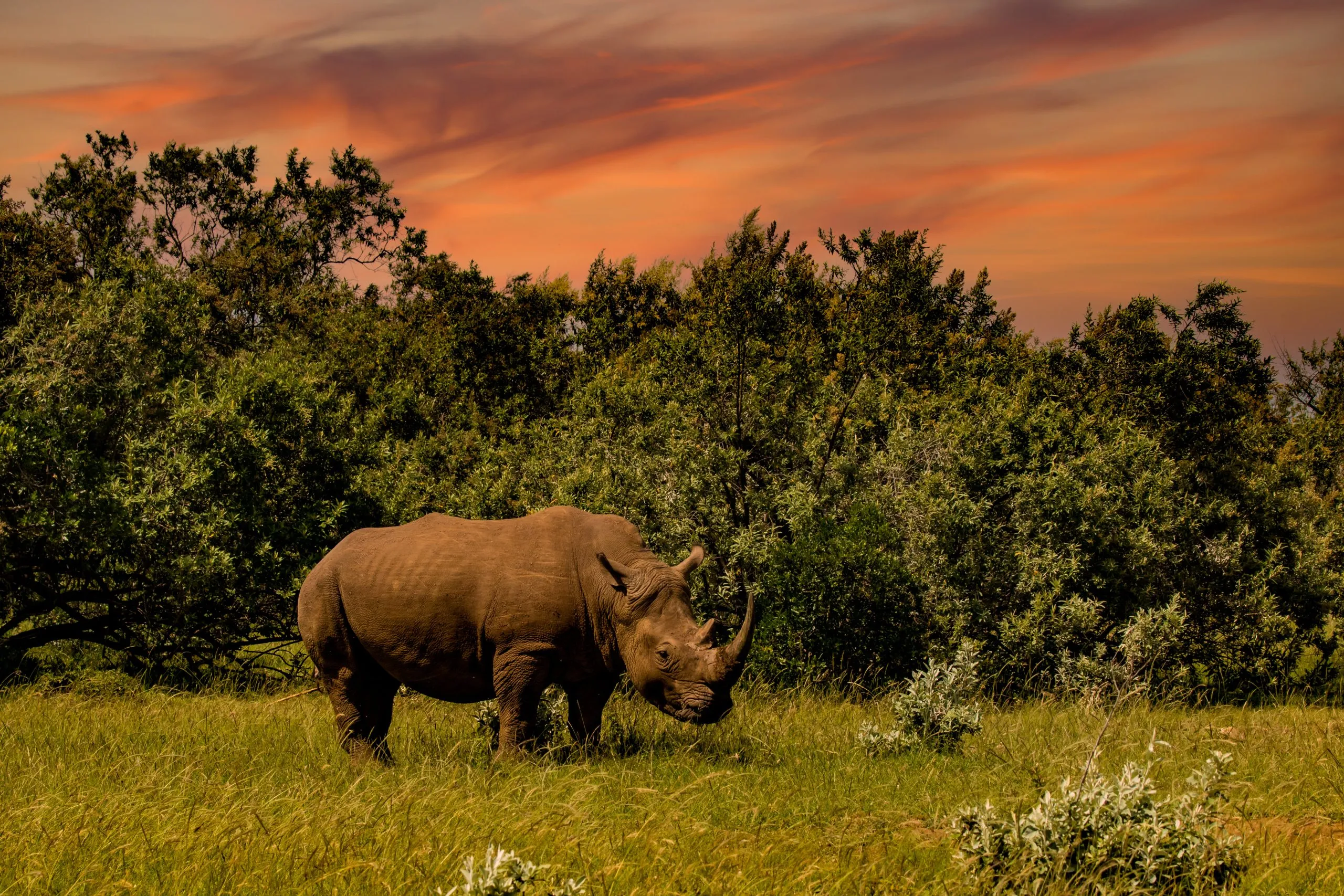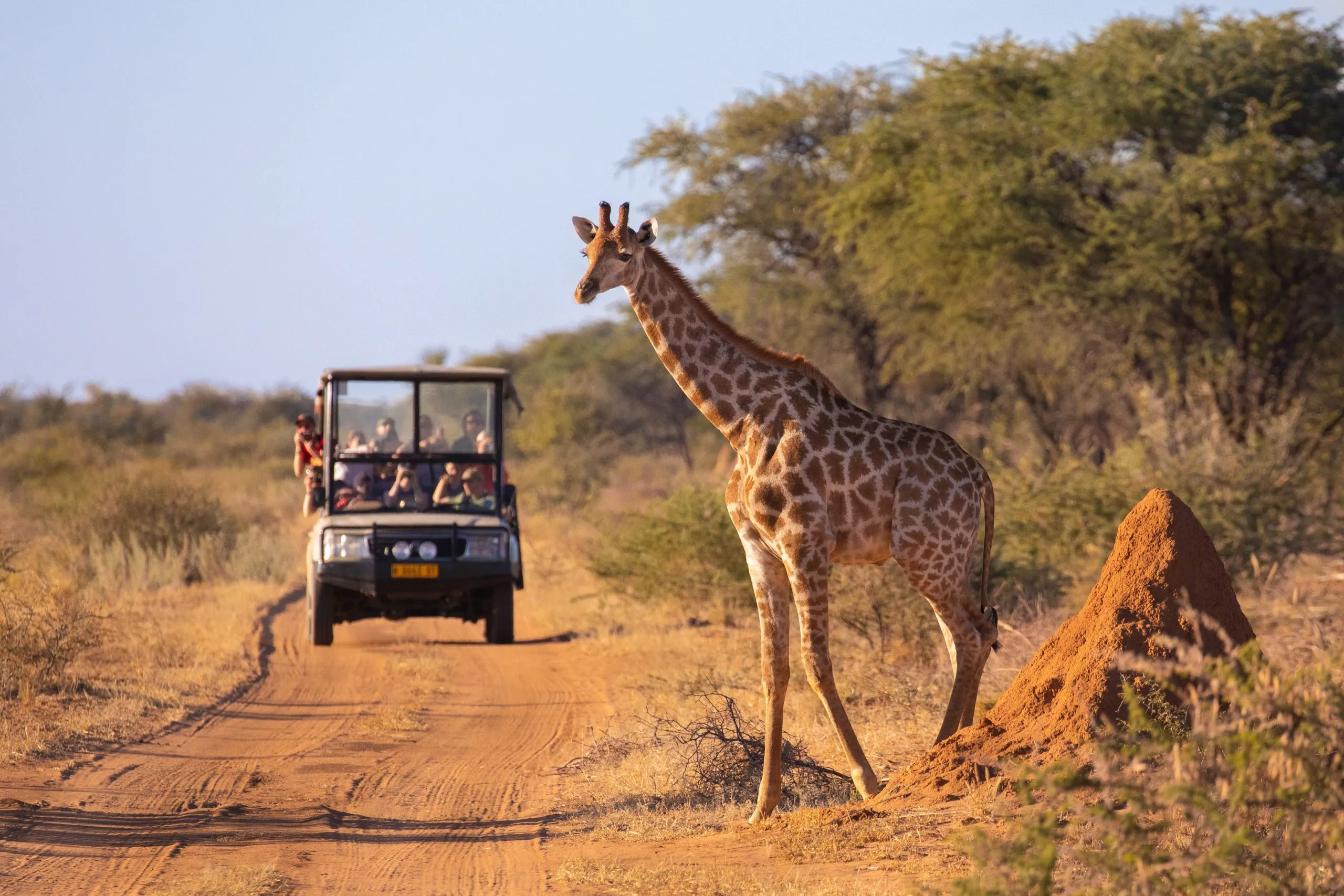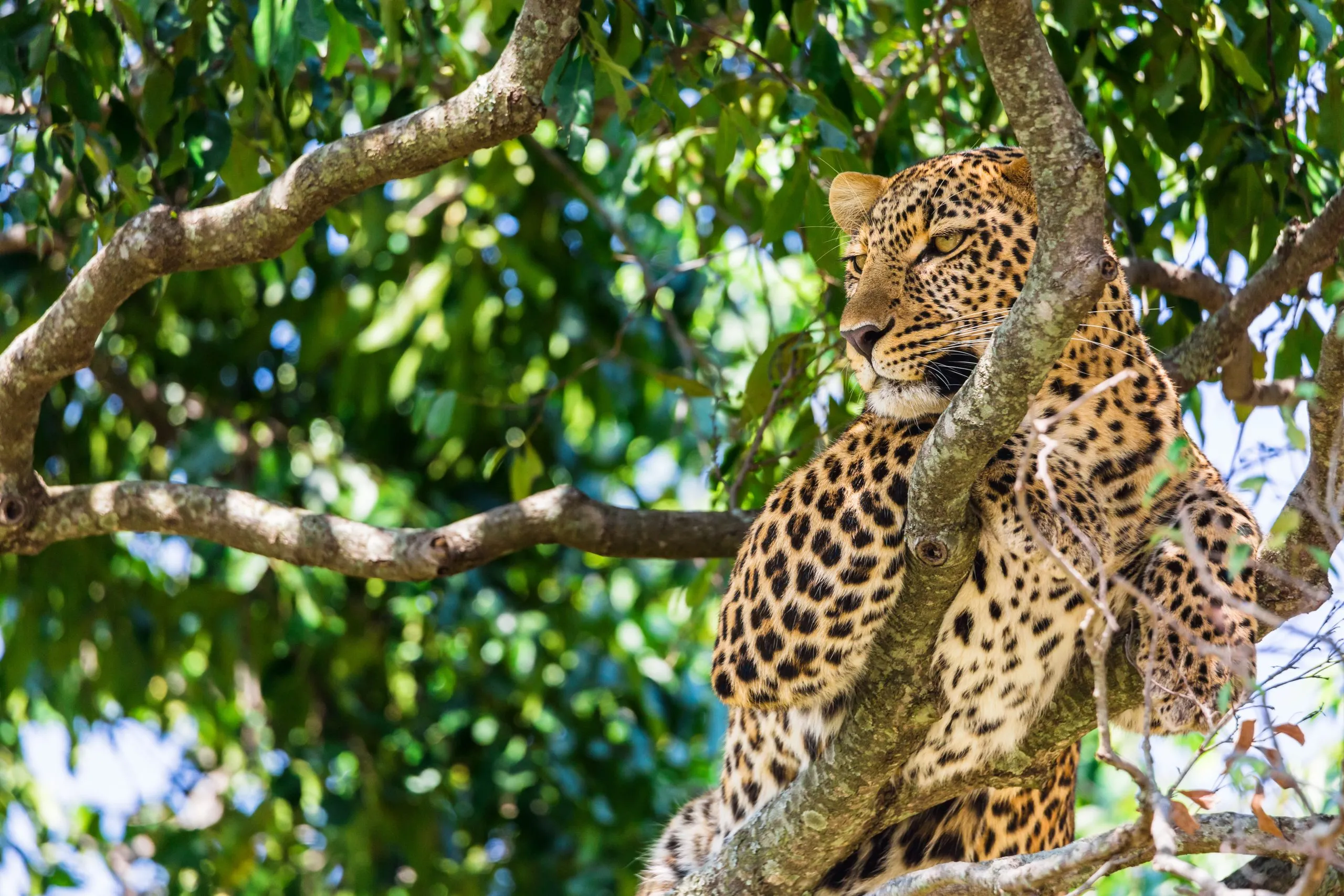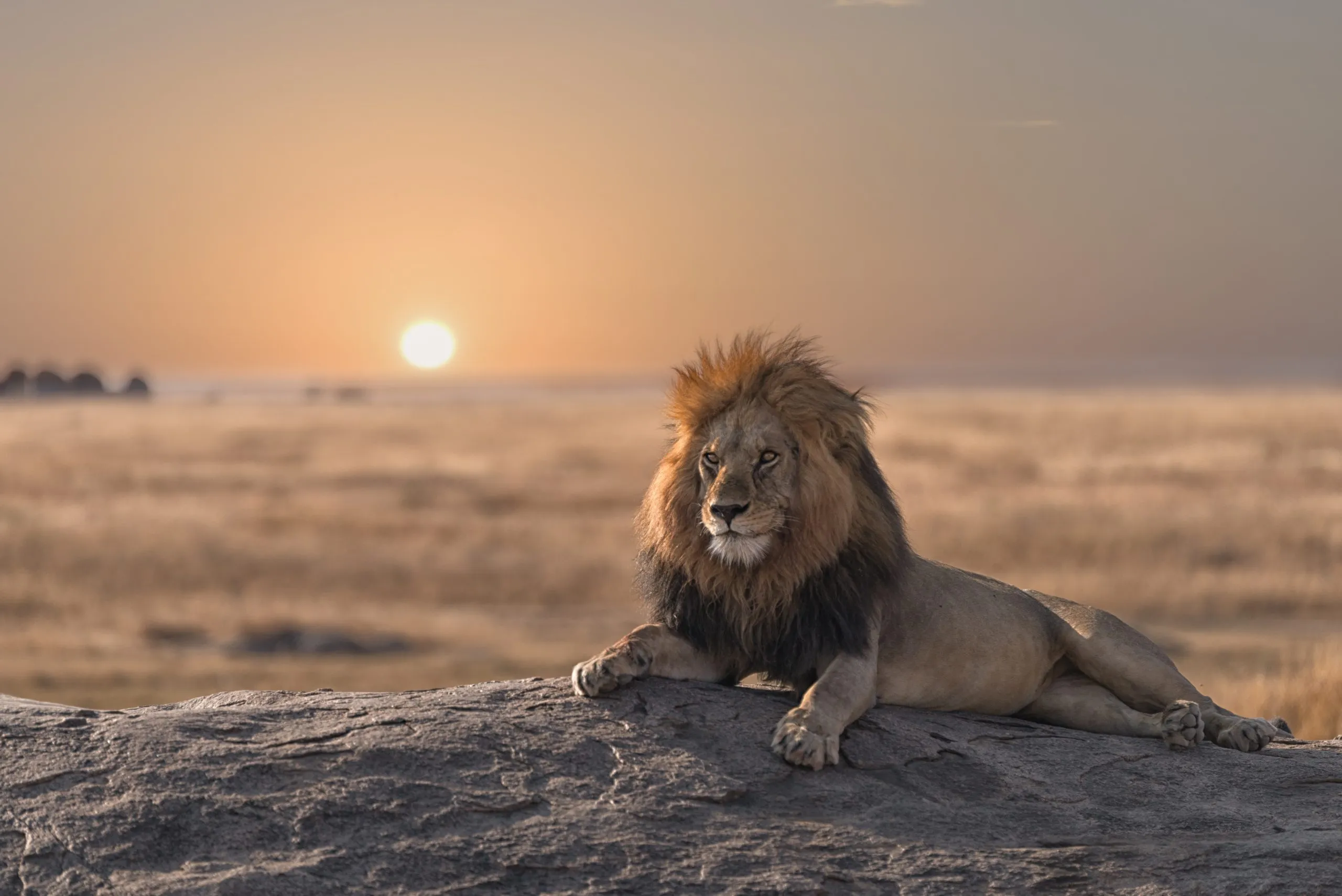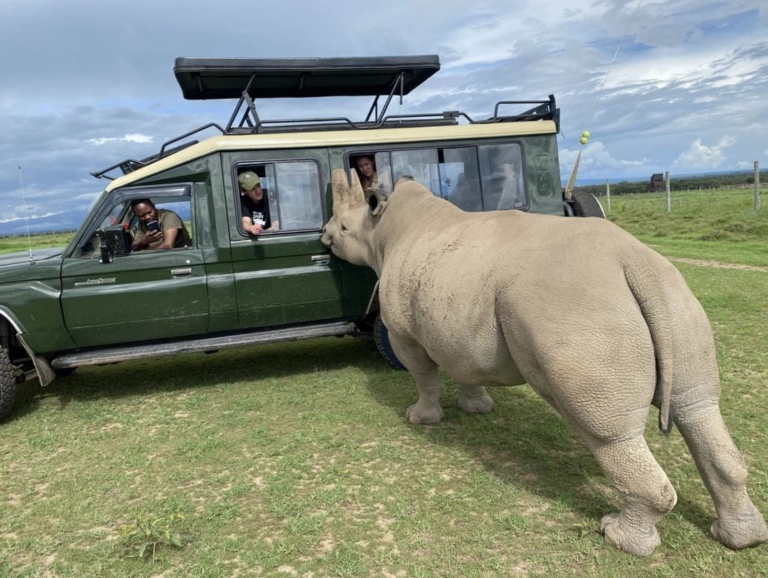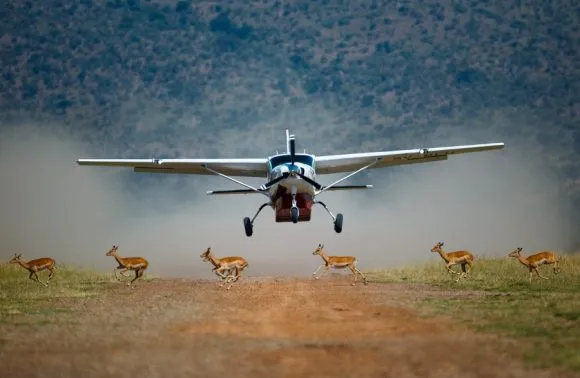
Samburu National Reserve Flying Package
Enjoy a scenic flight from Nairobi to Samburu, offering stunning aerial views of Kenya’s landscapes
Stay at the luxurious Ashnil Samburu Camp, perfectly blending comfort with the natural environment
Discover the rare Samburu Special Five: Grevy’s zebra, reticulated giraffe, Somali ostrich, gerenuk, and Beisa oryx
Experience thrilling morning and evening game drives guided by expert rangers and naturalists
Immerse in the rich culture of the local Samburu community, gaining insights into their traditional way of life
Revel in the tranquil beauty of the Samburu landscape, a less-visited yet spectacular part of Kenya
Itinerary
The adventure starts with a morning pick-up in Nairobi and a transfer to Wilson Airport for your flight to Samburu Park. Enjoy aerial views of lush farmlands and glimpses of Mount Kenya before landing in the arid North. Upon arrival, you’ll be transferred to Ashnil Camp for lunch. Your first game drive in Samburu Reserve begins in the evening, providing an initial glimpse of the unique wildlife and landscapes. The day concludes with dinner and overnight at the camp.
Lunch
Dinner
Ashnil Camp
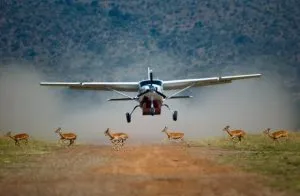
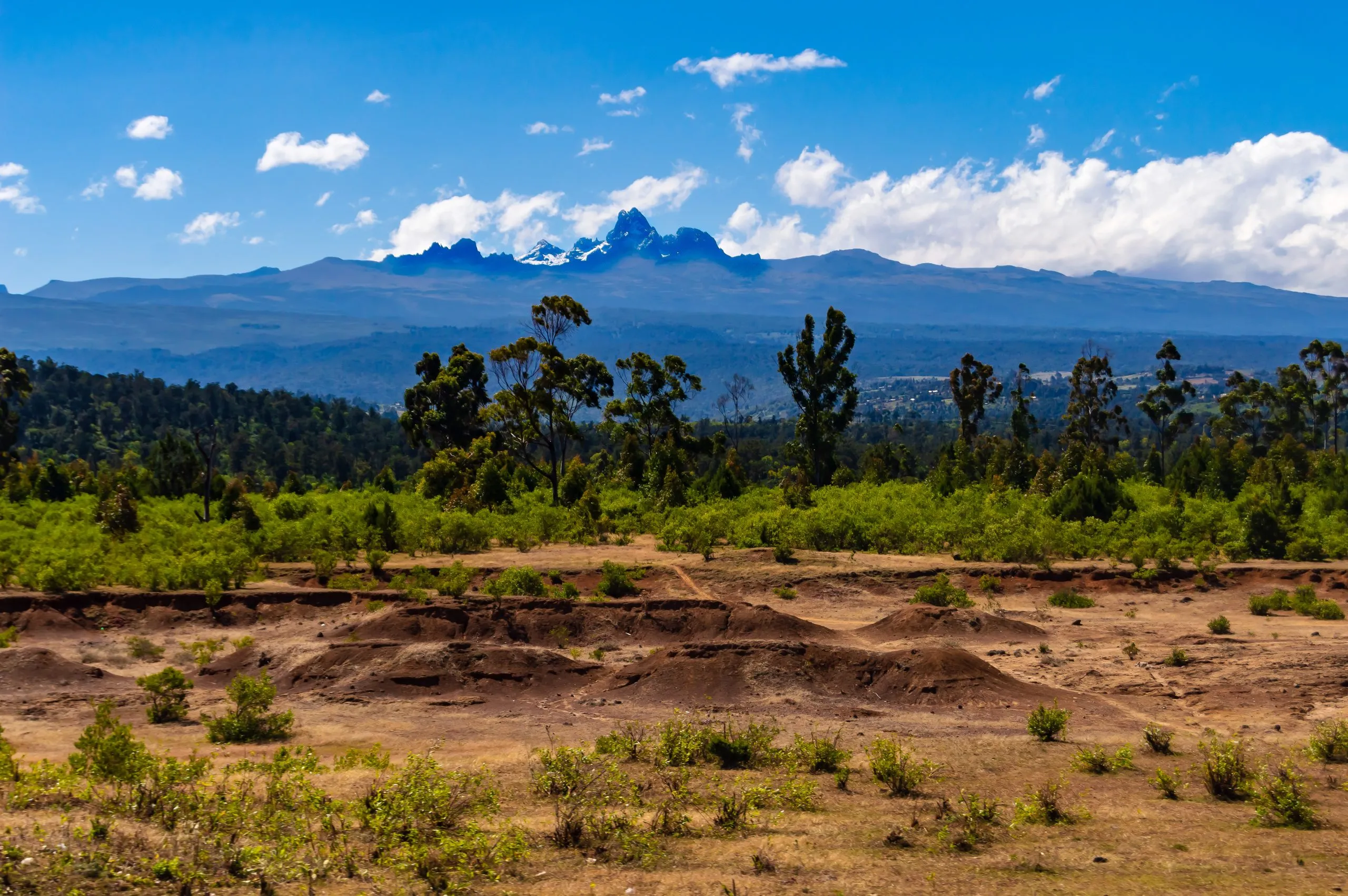
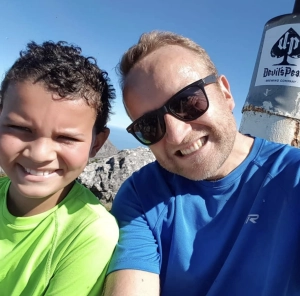
Embark on an early morning game drive, returning to the camp for breakfast. After lunch, enjoy another excursion into the reserve. Samburu’s arid environment is home to rare species like Grevy’s zebra, reticulated giraffe, Oryx, gerenuk, Somali ostrich, and dik-dik. The day ends with dinner and overnight at Ashnil Camp.
Breakfast
Lunch
Dinner
Ashnil Camp
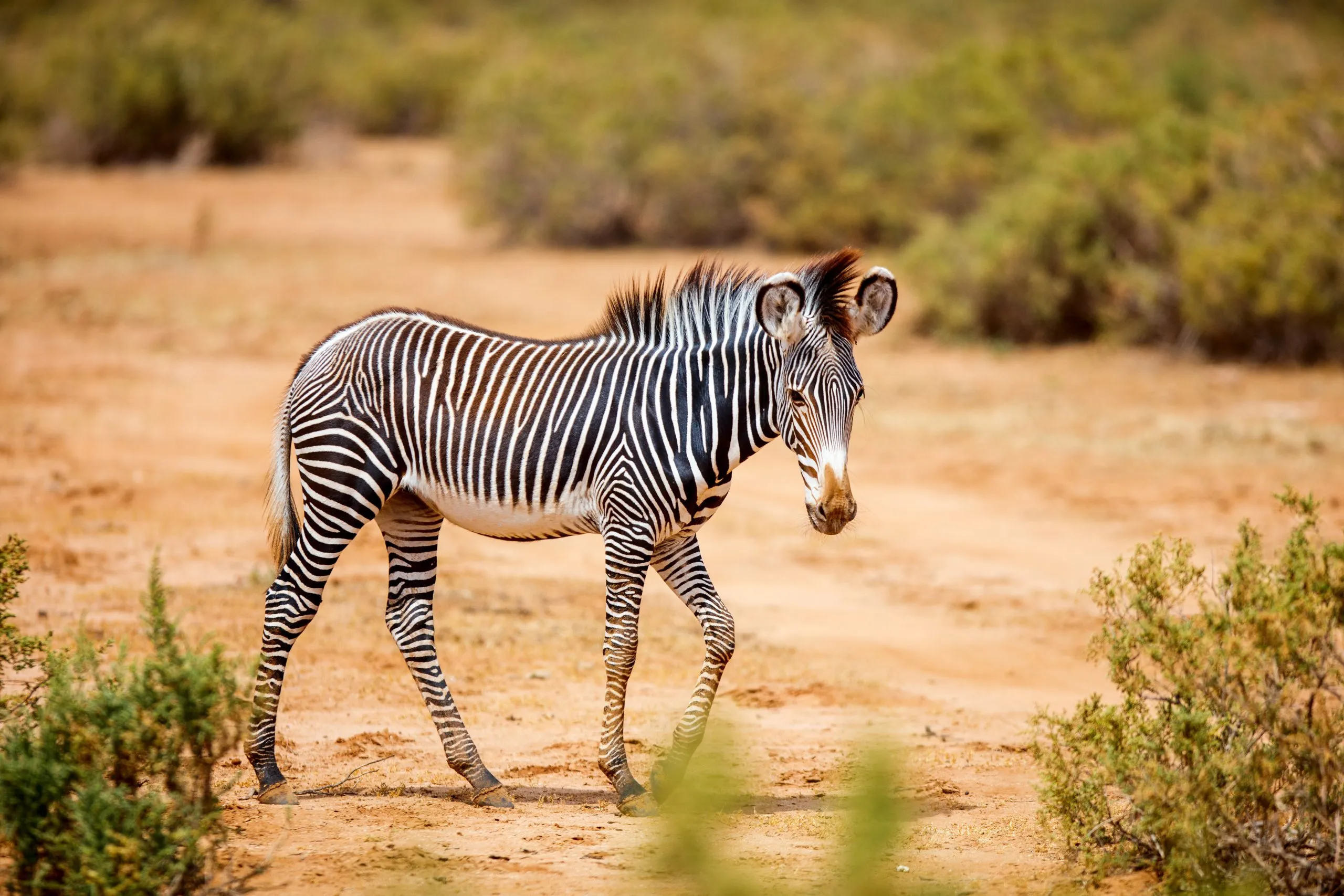
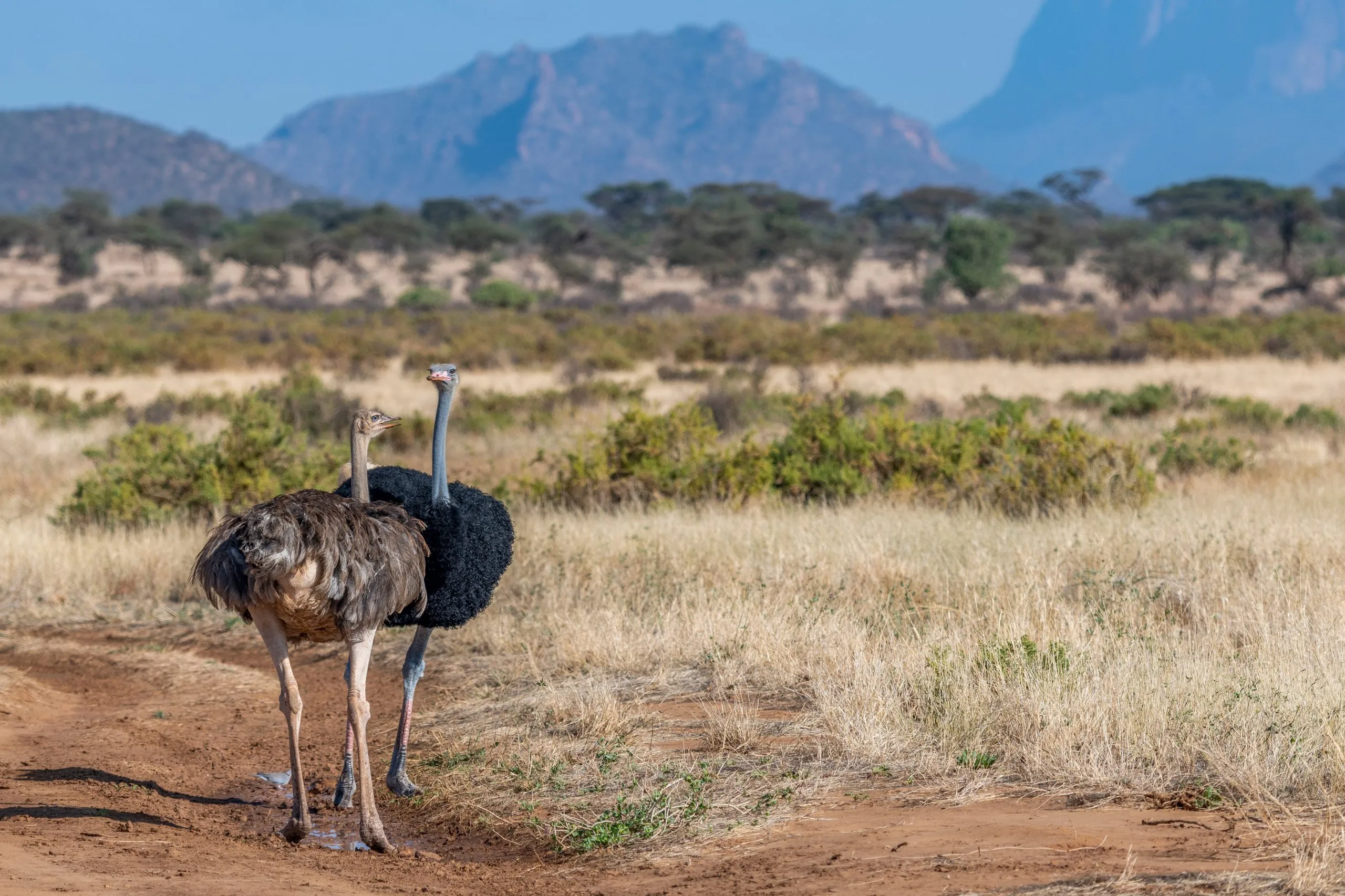
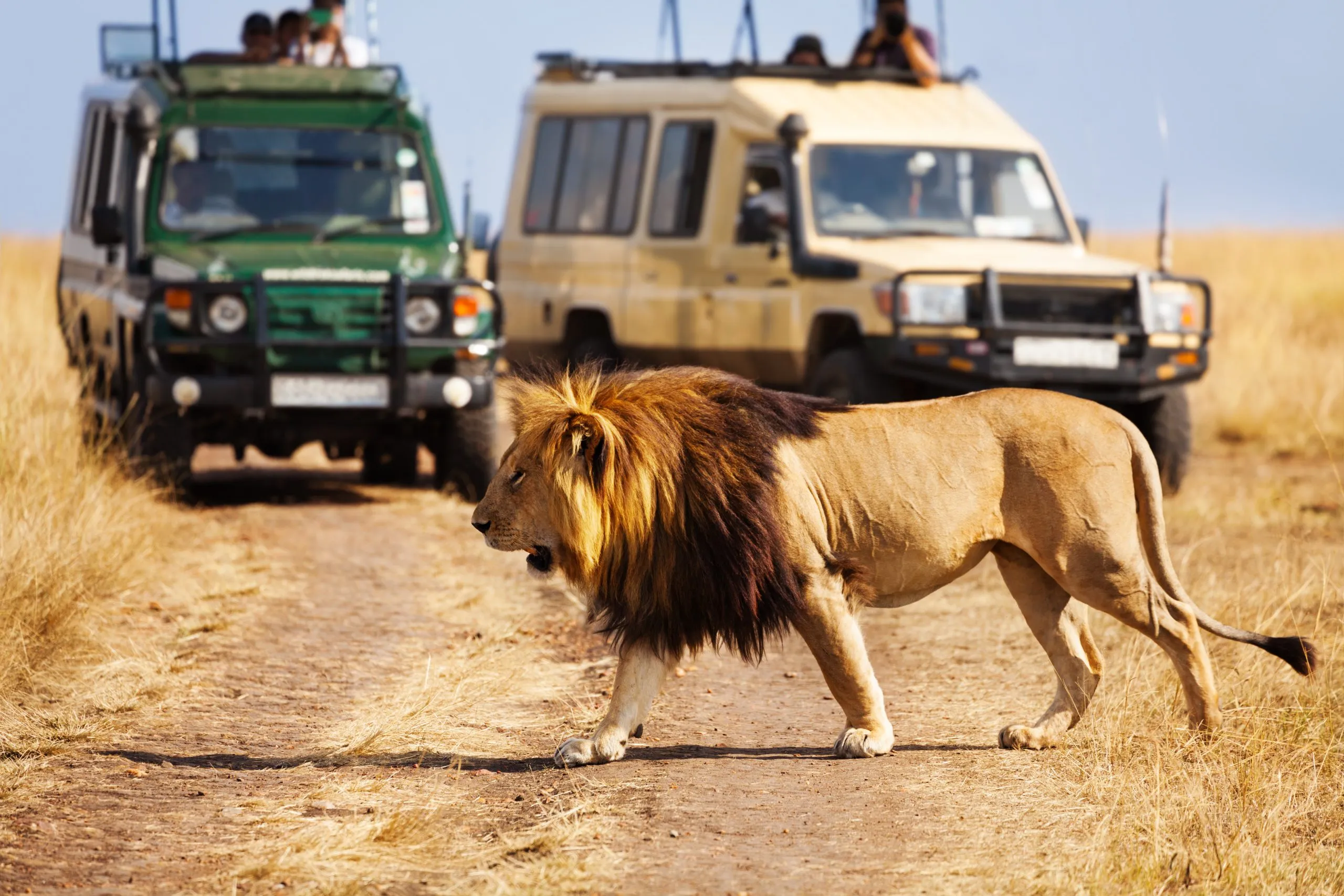
The day follows a similar pattern with morning and evening game drives. These excursions offer further opportunities to explore Samburu’s diverse landscapes and wildlife. The reserve’s unique positioning north of the equator and its distinct ecosystem make for unforgettable sightings. Enjoy another night at Ashnil Camp, reflecting on the day’s adventures.
Breakfast
Lunch
Dinner
Ashnil Camp
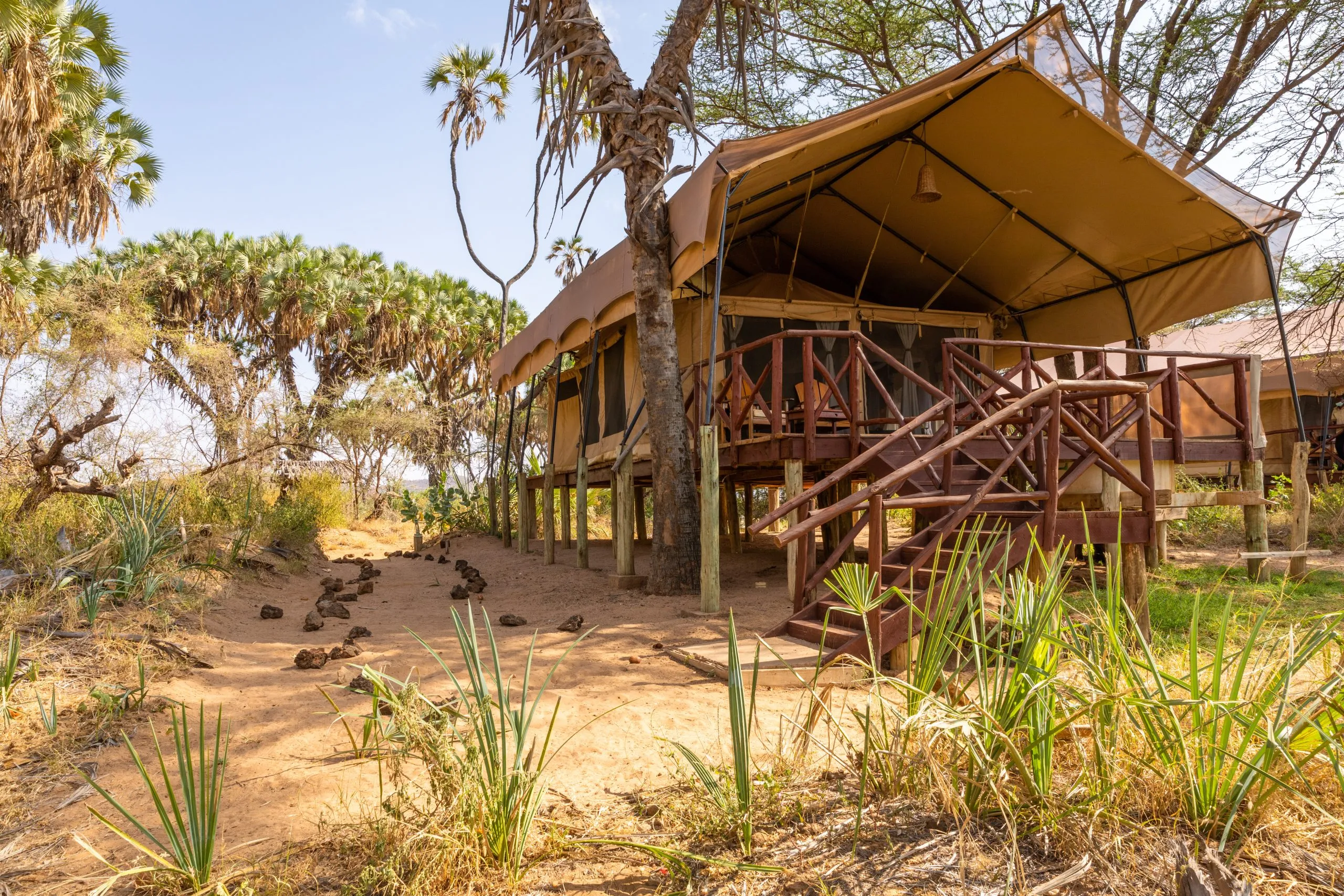
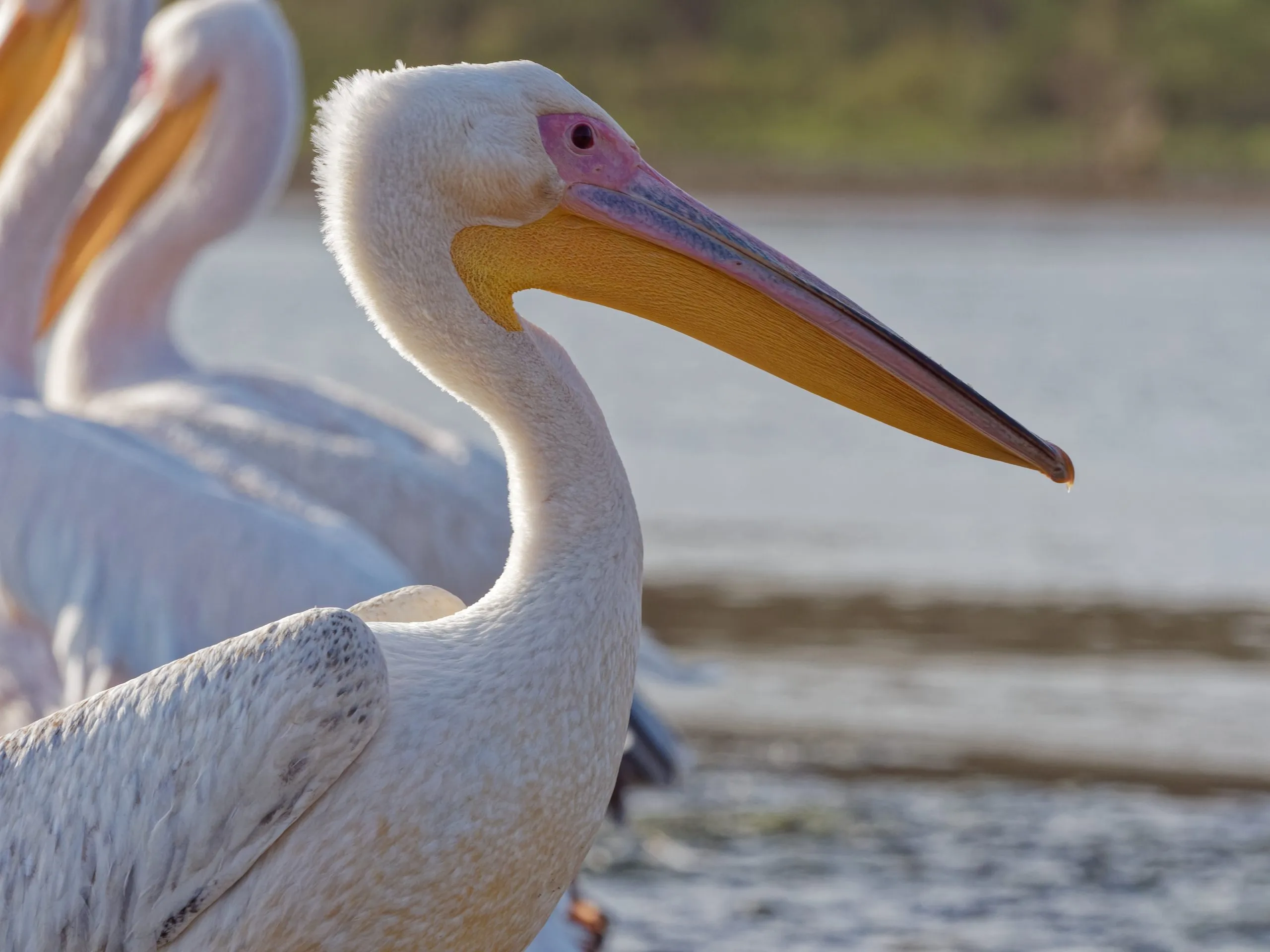
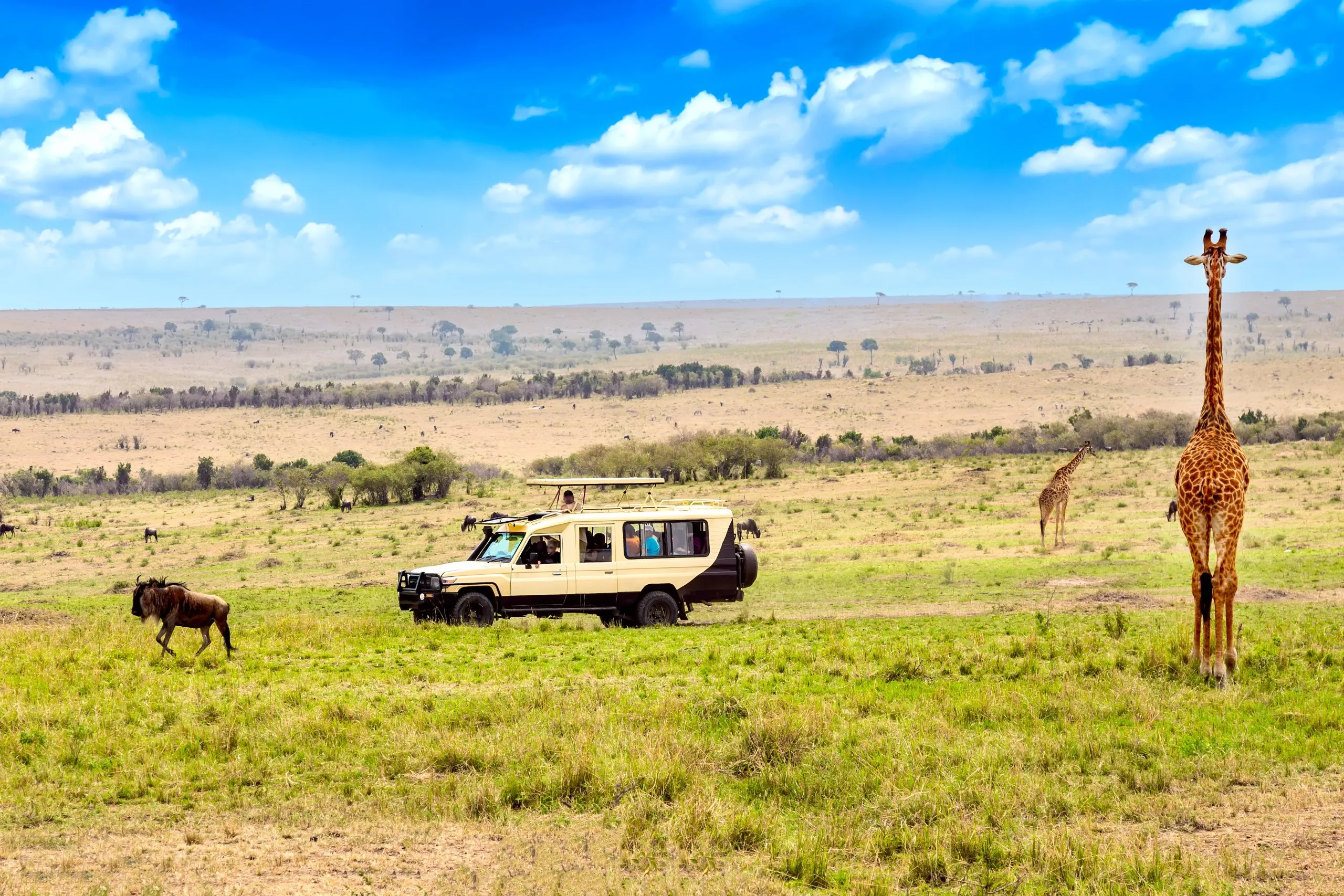
After breakfast, transfer to Samburu Airport for your scenic flight back to Nairobi. The return journey offers a last chance to admire the beauty of Kenya’s landscapes from the air. Upon arrival at Wilson Airport, you’ll be transferred to your hotel in Nairobi, marking the end of your Samburu safari experience.
Breakfast
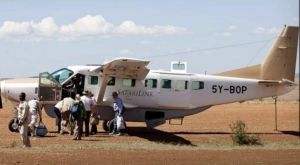
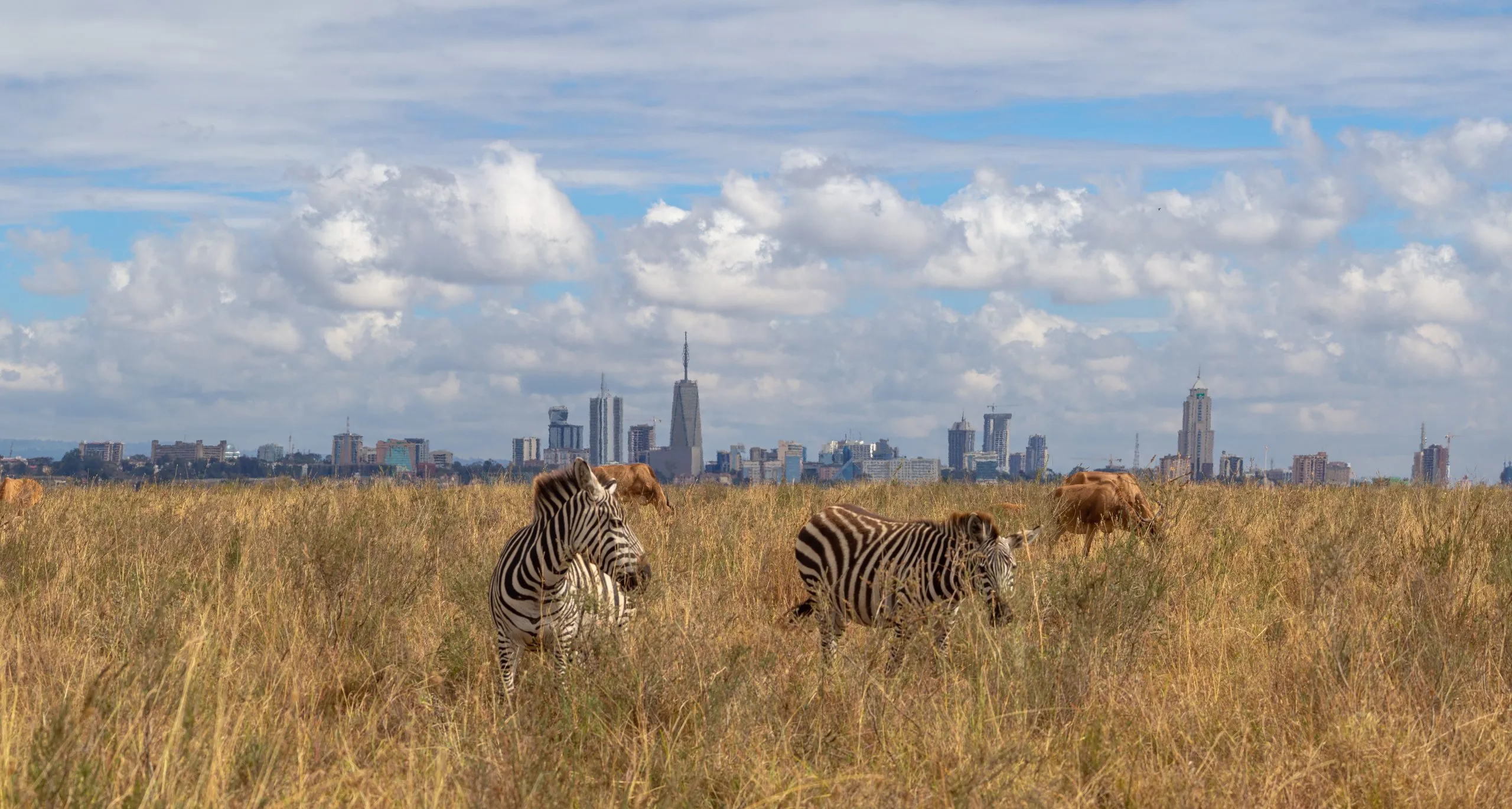
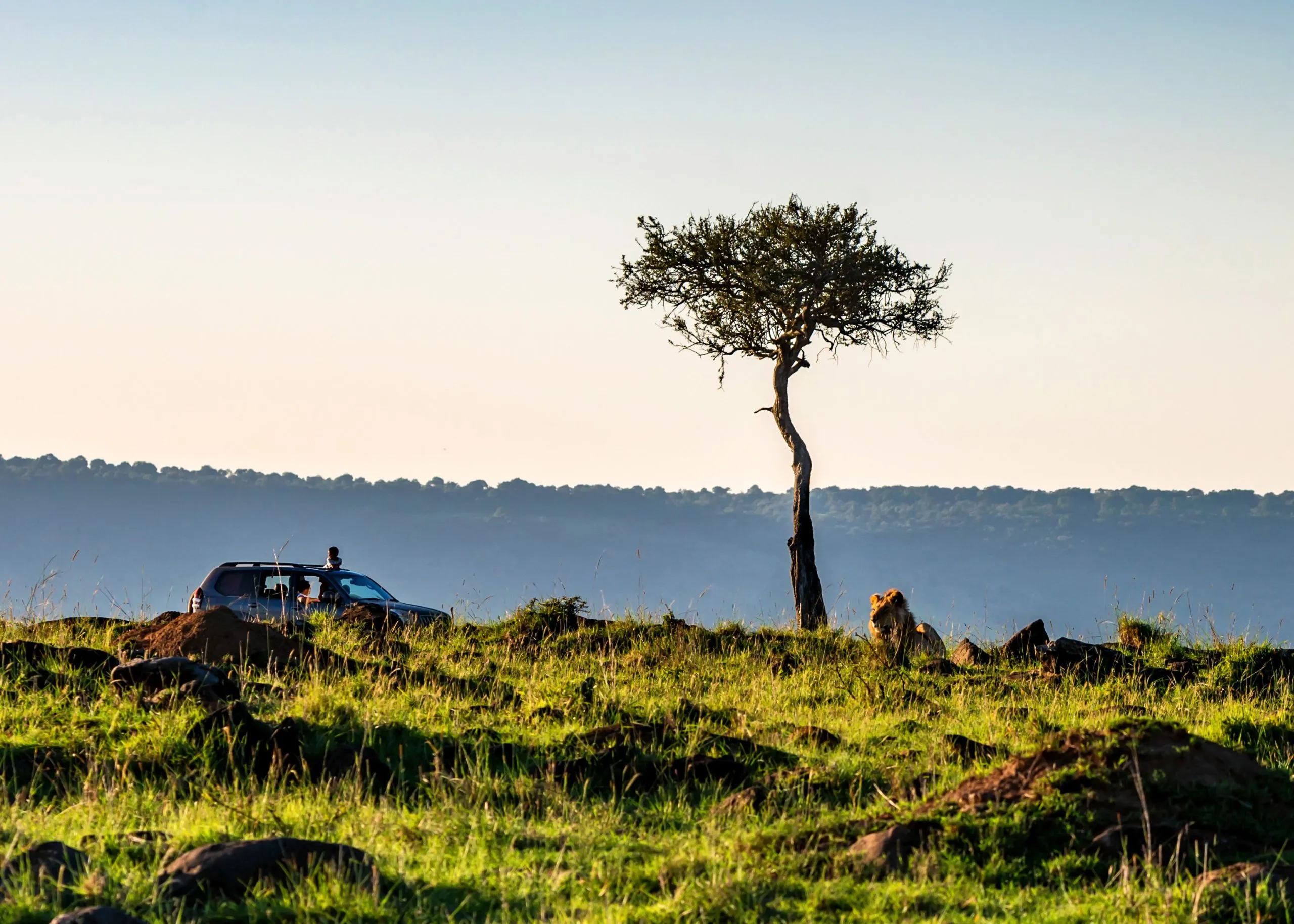
Pricing
Included in price
Park fees
All transport
Accommodation
Gorilla permits
Meals
Transfers
All taxes
Mineral water
International flights
Tips
The government-imposed increase in taxes/park fees
Description
Escape into the untamed beauty of Samburu National Reserve, a unique sanctuary where the wildlife and landscapes offer a stark contrast to the familiar African savannah. This tour presents an exclusive journey into this less-trodden path, combining luxury with the raw allure of the Kenyan wilderness.
Your adventure begins with a picturesque flight from Nairobi, soaring over Kenya‘s varied topography. The aerial view is a prelude to the wonders of Samburu, a land characterized by rugged beauty and rare wildlife species.
At the heart of this experience is your stay at Ashnil Samburu Camp. Perfectly situated on the banks of the Ewaso Nyiro River and surrounded by the pristine landscapes of the reserve, the camp offers a blend of comfort and authentic wilderness living. Here, in your luxurious tented accommodation, the sounds of the wild become a natural lullaby.
Samburu is a haven for wildlife enthusiasts and nature lovers. It’s a region where the Samburu Special Five – Grevy’s zebra, reticulated giraffe, Somali ostrich, gerenuk, and Beisa oryx – roam freely.
Guided game drives at dawn and dusk offer magical encounters with these unique species, set against the backdrop of the dramatic Samburu landscape.
Beyond the wildlife, Samburu is a cultural mosaic rich in traditions and stories. The local Samburu people, with their vibrant attire and ancient customs, add a fascinating cultural dimension to your safari. The community offers insights into a way of life that has harmoniously coexisted with nature for centuries.
As your safari concludes, a flight back to Nairobi is not just a journey home but a reflection on the unforgettable moments spent in Samburu. The memories of this unique landscape and its inhabitants linger, a reminder of the beauty and diversity of Kenya’s wilderness.
Location
Start planning today!
Things to know
The dry season from June to October is ideal for wildlife viewing. For specific experiences like the Great Migration, visit between July and October. Best times to visit Kruger Park for a safari include the dry season from mid-June to September, avoiding South African public holidays to minimize crowds. Early December is also recommended for vibrant vegetation and wildlife viewing. For birdwatching, December to March is ideal. Booking 3-6 months in advance, especially during peak season, is advisable.
Guided safaris typically include dinner and breakfast. Some tours also include lunch. For days without lunch, stops are made for refreshments. Dietary preferences like vegetarianism or specific allergies can be accommodated, though options might be limited in remote locations. Special diets like kosher, halal, or vegan may not be catered for, so flexibility is recommended. Diabetic passengers are advised to carry snacks for potential delays during game drives.
Yes, safaris accommodate families, but it’s best for those with children under 6 to book private tours. Children can join all game drives, but those under six can’t be on open vehicles after dark in Kruger Park. Family-friendly accommodations are provided, and children dine with their parents. Health precautions against malaria are advised. Safety measures include supervision and using a torch at night. Children under 12 may receive discounts when sharing a room with adults.
An African safari offers a blend of adventure, wildlife sightings, cultural encounters, and breathtaking scenery. It’s an opportunity to disconnect from the fast pace of modern life and immerse yourself in nature’s rhythms. Unforgettable moments include the first sighting of an elephant in the wild or the sound of a lion’s roar under a starlit sky. Moreover, your visit contributes to the conservation of Africa’s majestic wildlife and natural landscapes.
Kenya, Tanzania, Uganda, Rwanda, Zimbabwe, Botswana, Zambia, and South Africa are all prime safari destinations. The choice can depend on whether you want to combine your safari with other activities, such as beach stays, cultural visits, natural wonders, or the Winelands of South Africa.
While wildlife sightings can never be guaranteed, you may encounter the Big Five (lion, leopard, rhino, buffalo, and elephant) and a myriad of other species. The unpredictability of sightings adds to the safari’s allure, and even quiet game drives can offer exceptional birdwatching opportunities.
Safaris typically start early with a morning game drive, followed by brunch and a midday break for relaxation. Afternoon drives include a sundowner stop and often continue into the evening, offering chances to spot nocturnal animals. Be prepared for communal experiences in game-drive vehicles, with evening meals serving as a time for sharing the day’s adventures.
Safari costs vary widely, from budget tours to high-end luxury experiences. The choice of accommodation, visiting season, the remoteness of the location, and the mode of travel to the safari site (e.g., road vs. air) all influence the cost. Regardless of the price, consider tipping generously for good service, as it significantly benefits local staff.
Consider whether the tour is family-friendly if you prefer a malaria-free zone, the type of safari (group vs. tailor-made, camping vs. luxury lodge), and if you wish to combine the safari with other activities or destinations. Your preferences and budget will guide your choices.
Most lodges serve Western-style food. It’s advisable to specify dietary requirements in advance. Avoid tap water; opt for bottled water, especially when traveling outside main towns. Remember, Tanzania has banned the use of plastic bags.
Wear lightweight, comfortable clothing in neutral colors for game viewing. Evenings can be chilly, so pack long-sleeved clothing and a sweater. Respect local customs, especially in Muslim-majority areas, by dressing modestly.
Yes, most hotels and lodges offer internet services, and urban areas have cyber cafes. Internet speeds may vary.
Tanzania uses Type G, Type C, and Type D sockets, usually supplying electricity at 230 volts AC / 50 Hz. Bring a travel plug adapter or a voltage converter if necessary.

July to December
January to June
Why pick Safari Tours Africa?
HASSLE-FREE
TRUSTED PARTNERS
EXPERT LOCAL GUIDES
BOOK WITH CONFIDENCE
UNBEATABLE SUPPORT
Similar Safari Tours in Africa



